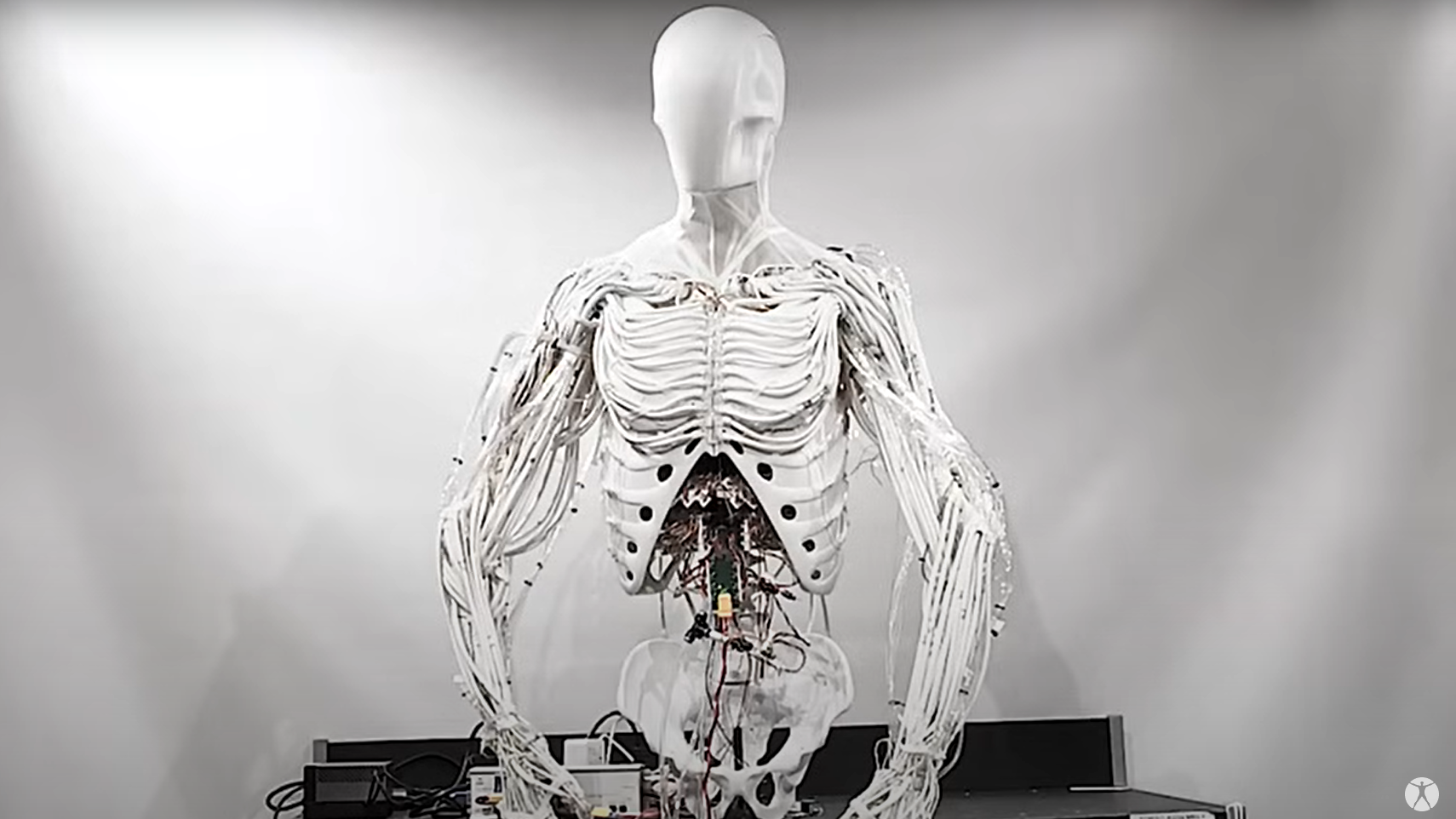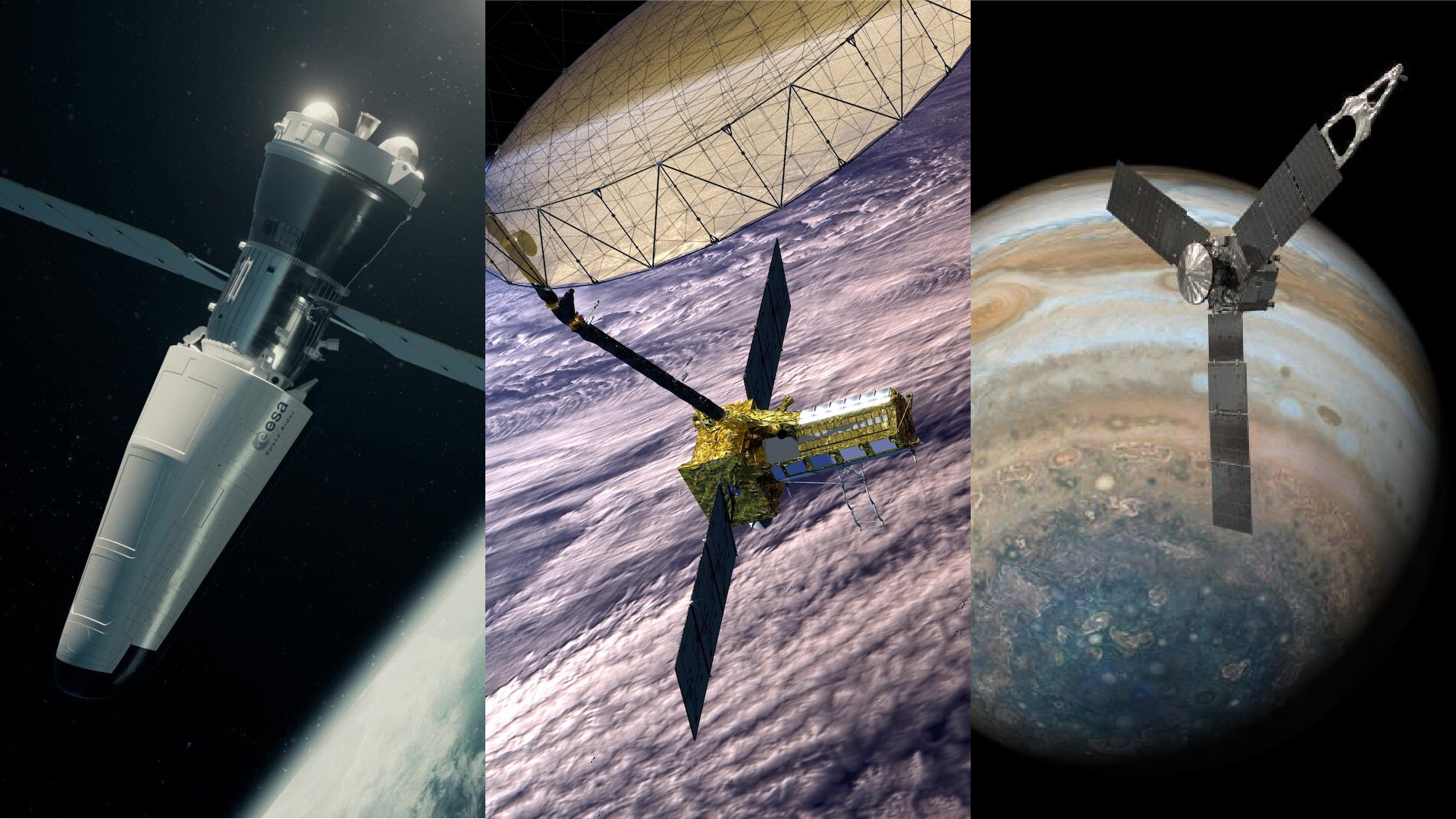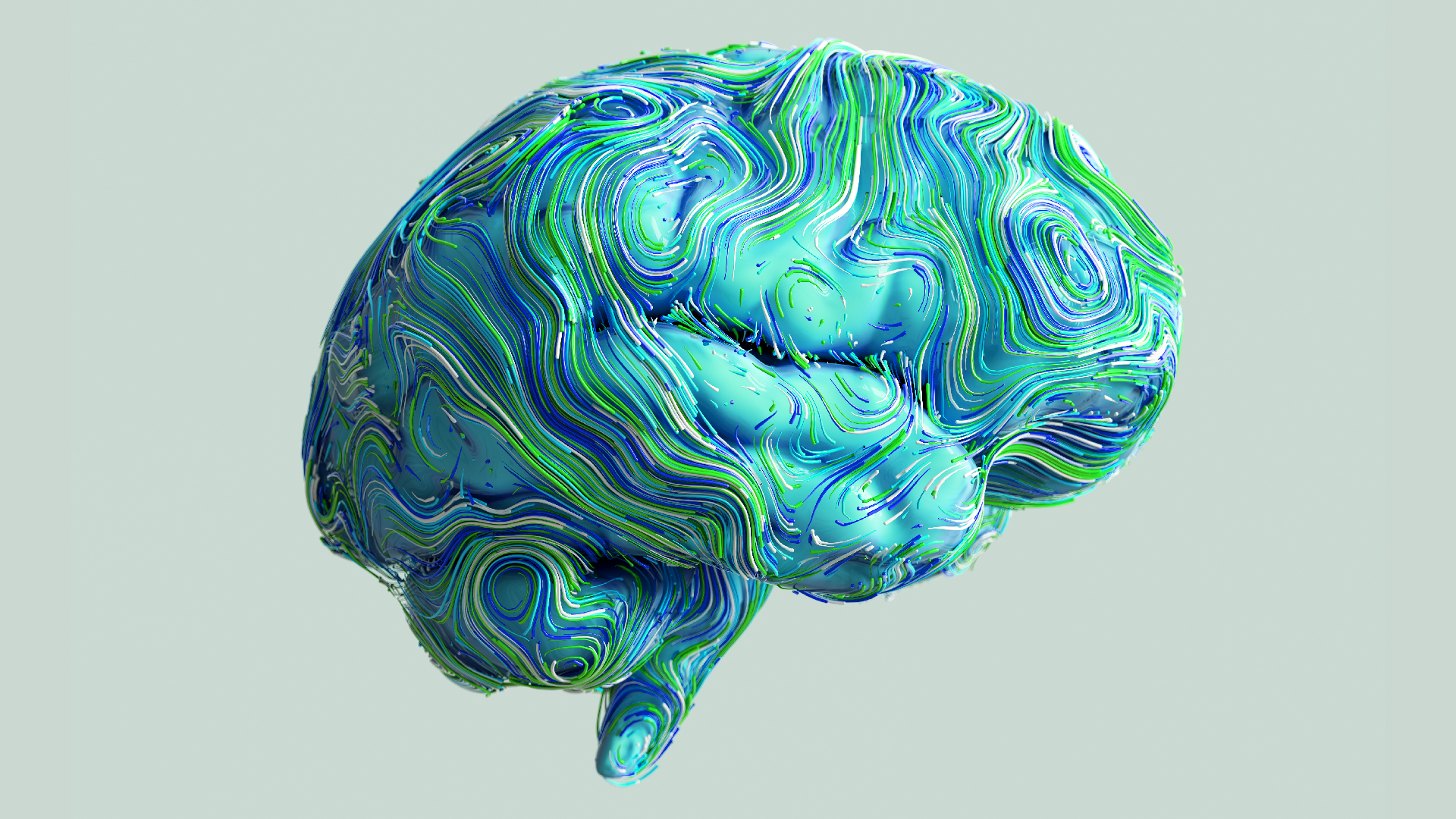32 stunning photos of auroras seen from space
Auroras (also called the northern and southern lights) are visible from the ground after powerful solar storms, but these natural light shows look even more majestic from above. Here are 32 spectacular photos of auroras taken from space.
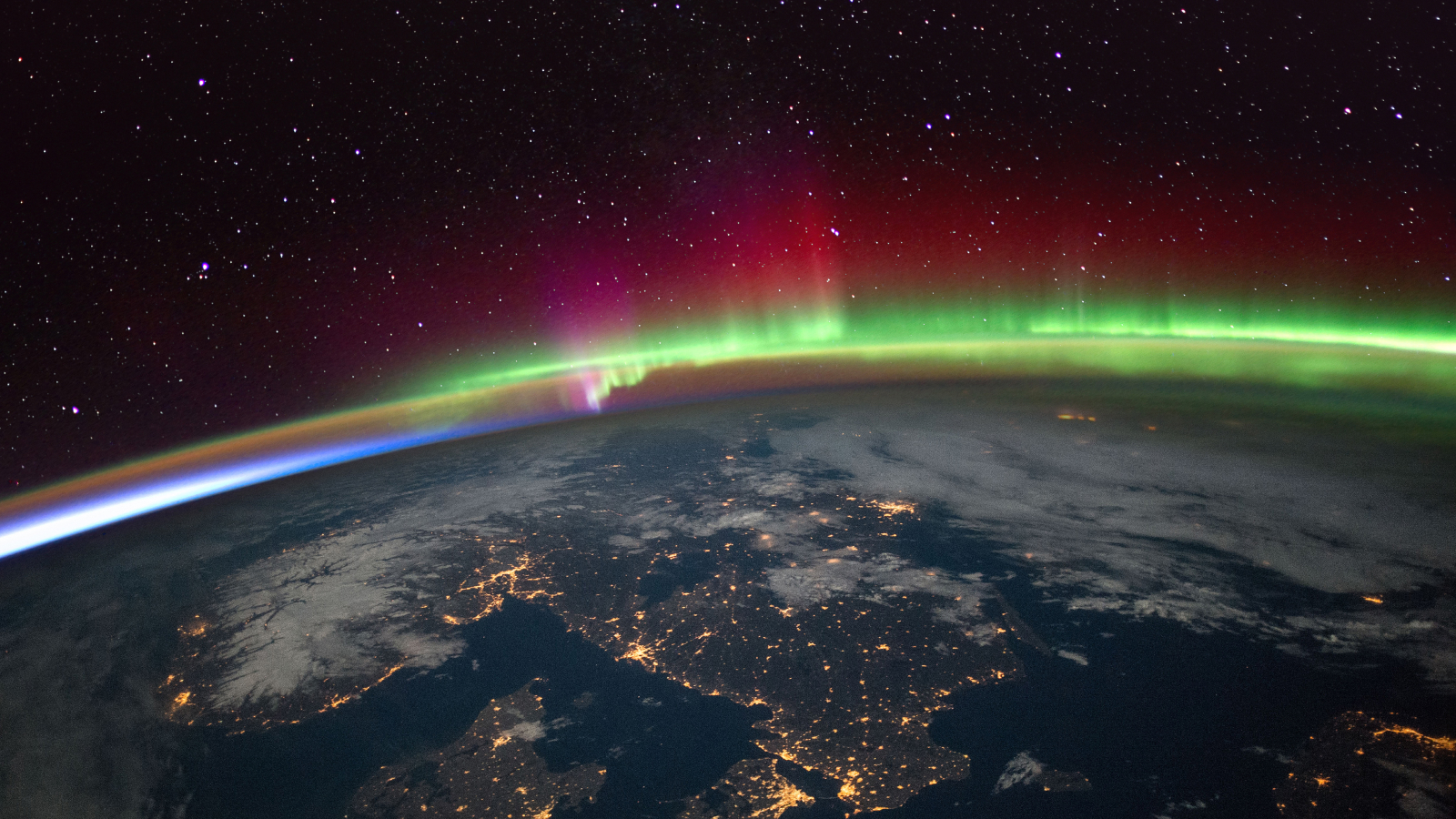
Auroras are perhaps the most spectacular natural light shows on Earth — and they look even more majestic from above.
Also called the northern lights (aurora borealis) and southern lights (aurora australis), auroras occur when charged particles from the sun crash into our planet's atmosphere and ride its magnetic-field lines toward the poles. As they zip along, those particles knock into other molecules in the atmosphere, exciting them and causing them to emit vibrant colors that are visible to the naked eye. Still, the full scope of this natural wonder is hard to take in from the ground.
Here are 32 of the most spectacular aurora photos taken by astronauts in orbit, showcasing the incredible scale and unbelievable beauty of Earth's atmospheric lights.
1. View of the southern lights from Challenger
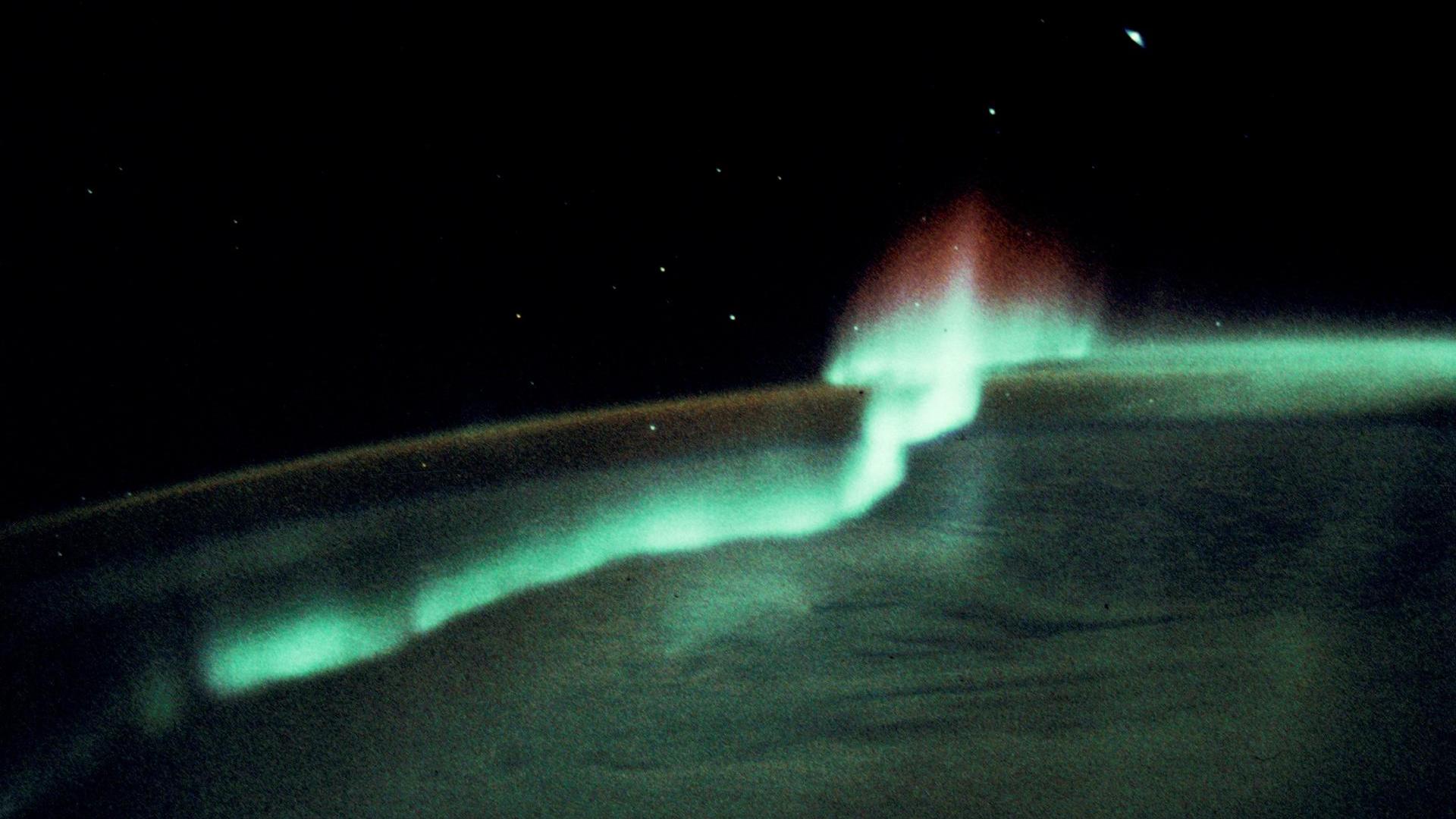
A green aurora slices through the Southern Hemisphere somewhere between Antarctica and Australia. This vintage shot of the southern lights was captured in April 1985 by astronaut Robert F. Overmyer aboard the space shuttle Challenger.
2. Aurora over Moscow
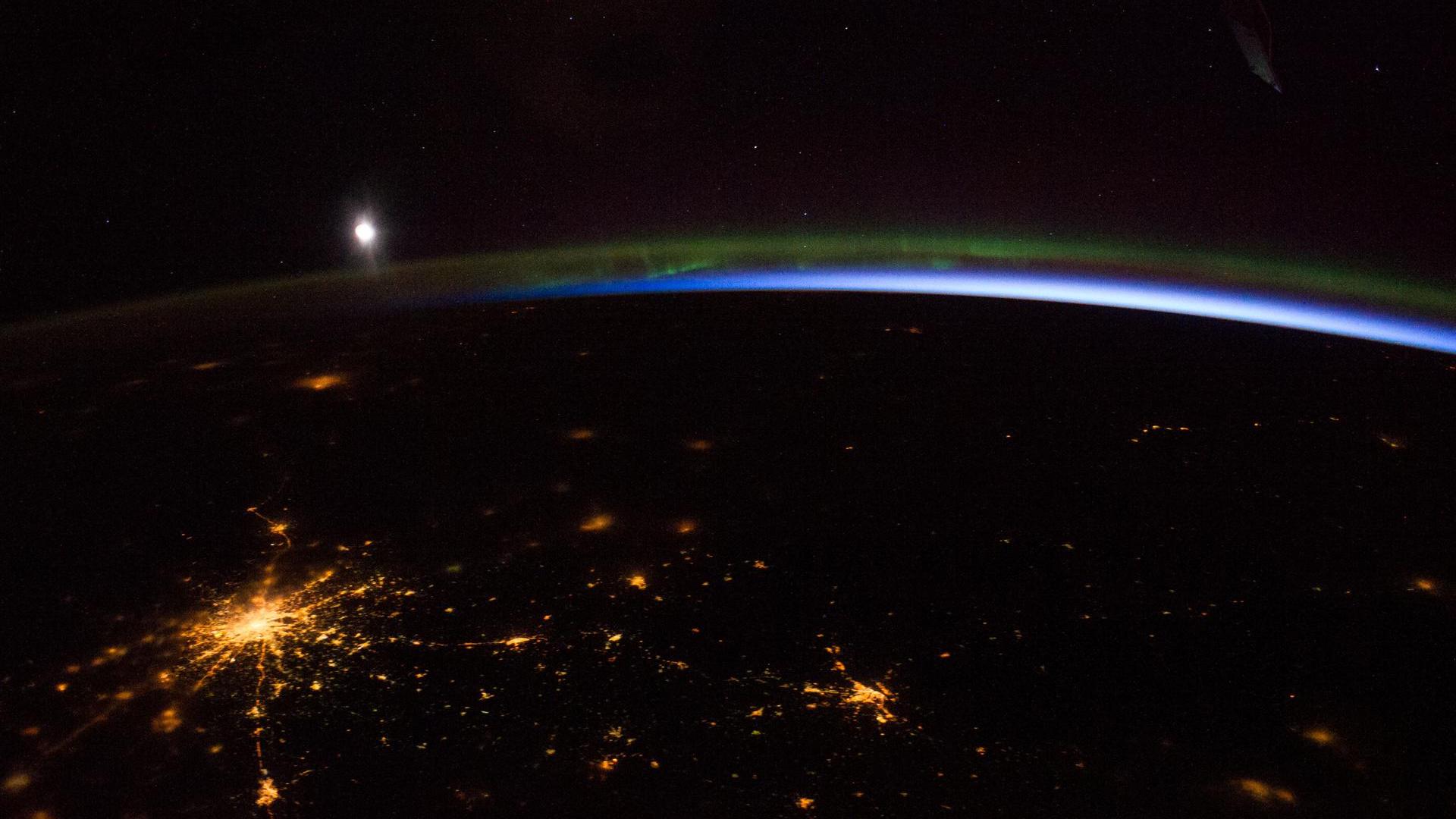
The northern lights swoop beneath a full moon as Moscow glows like a golden spider in the left of the frame. This photo was taken in April 2014 by an Expedition 39 crewmember aboard the International Space Station (ISS).
3. A world-eating serpent
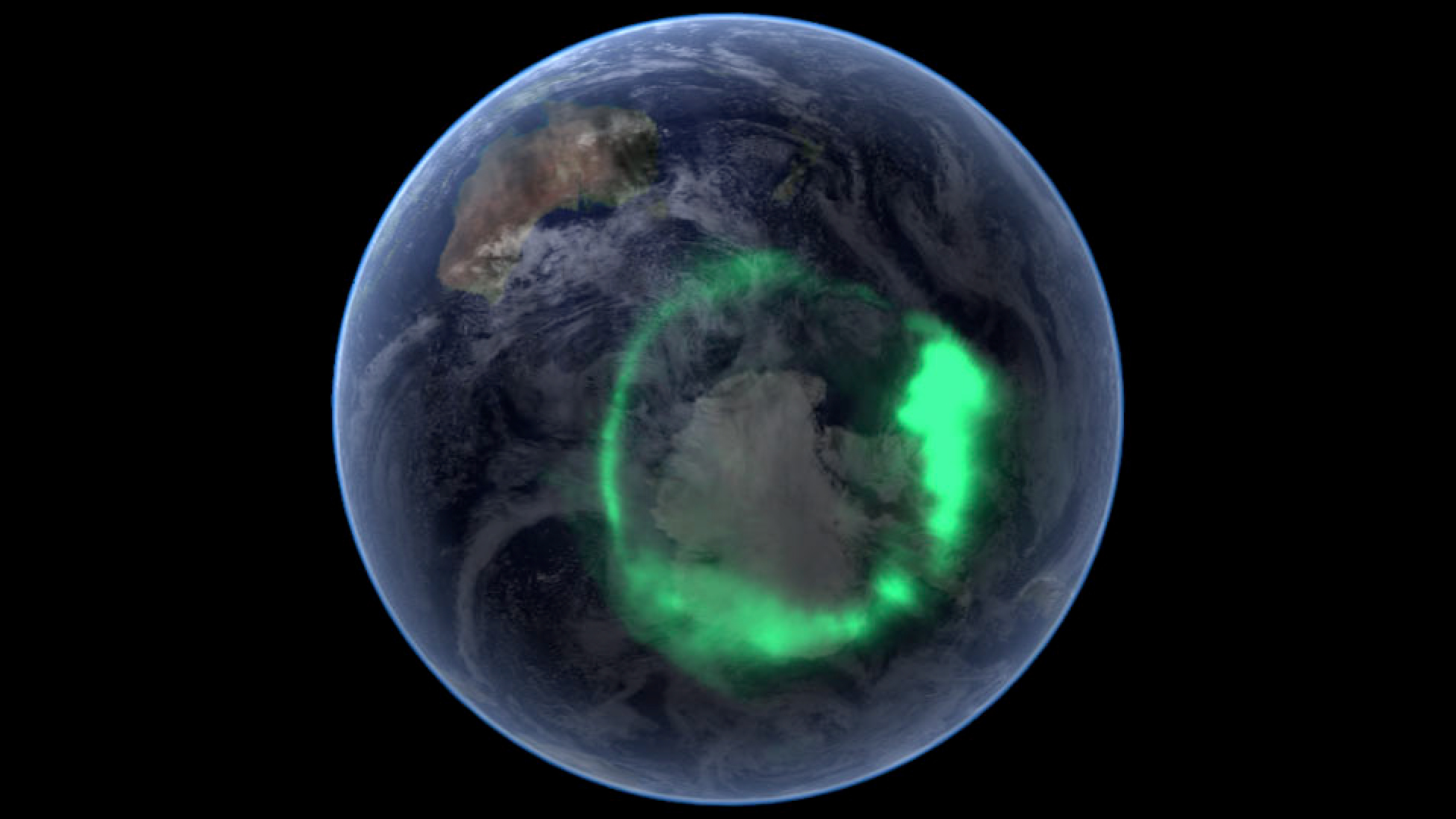
A vivid-green, nearly round aurora curls over the Southern Hemisphere like an enormous serpent. This exquisite photo was taken with NASA's IMAGE satellite in September 2005 from its orbit more than 600 miles (1,000 kilometers) over Earth.
4. Auroras at solar maximum
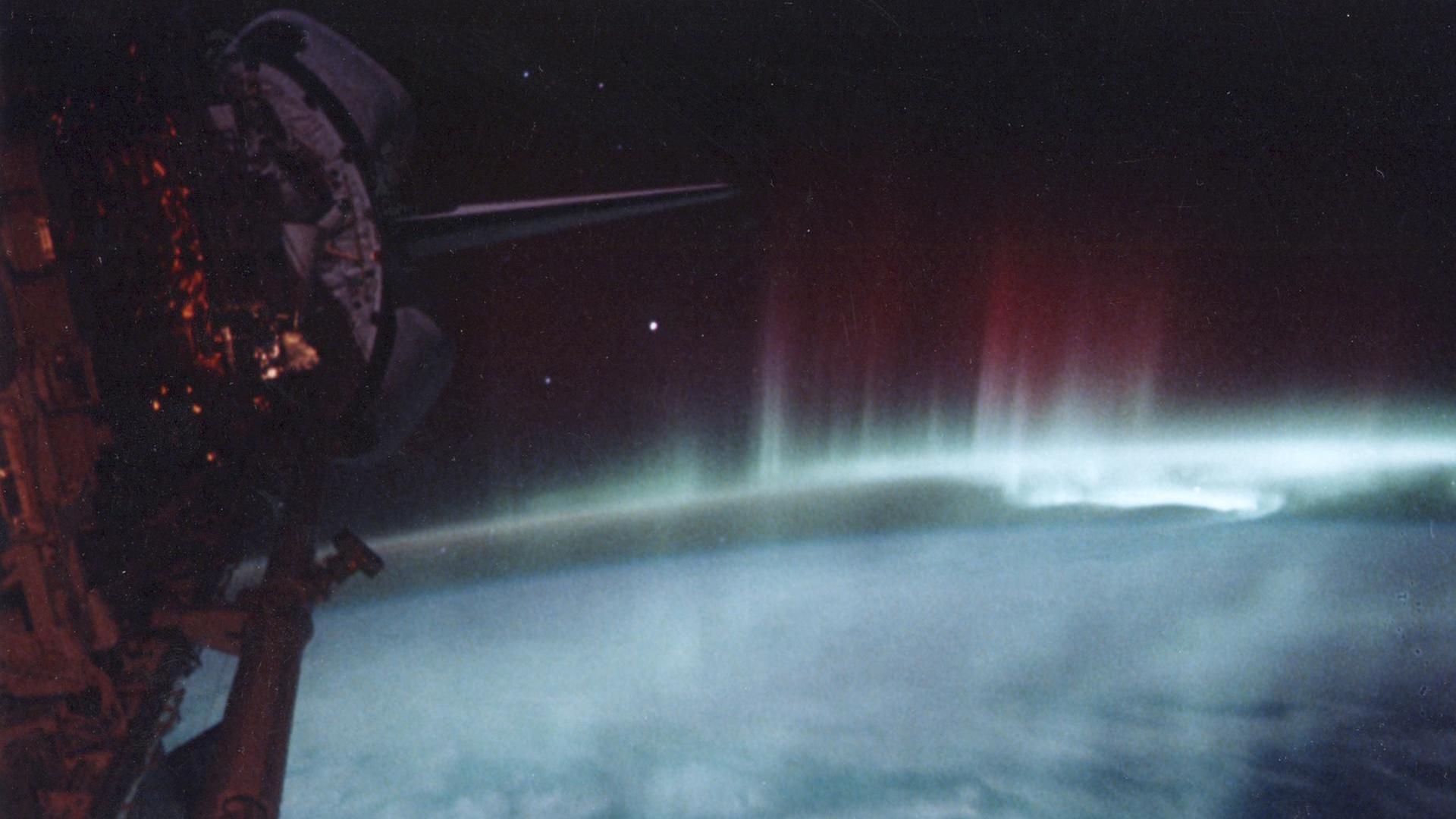
A green-and-red aurora snakes across the Southern Hemisphere in this photo taken from space shuttle Discovery in May 1991. This photo was captured during solar maximum — the period of maximum solar activity in the sun's 11-year cycle — when outbursts of charged solar particles are far more common, resulting in more frequent auroras on Earth.
5. Aurora with a dragon
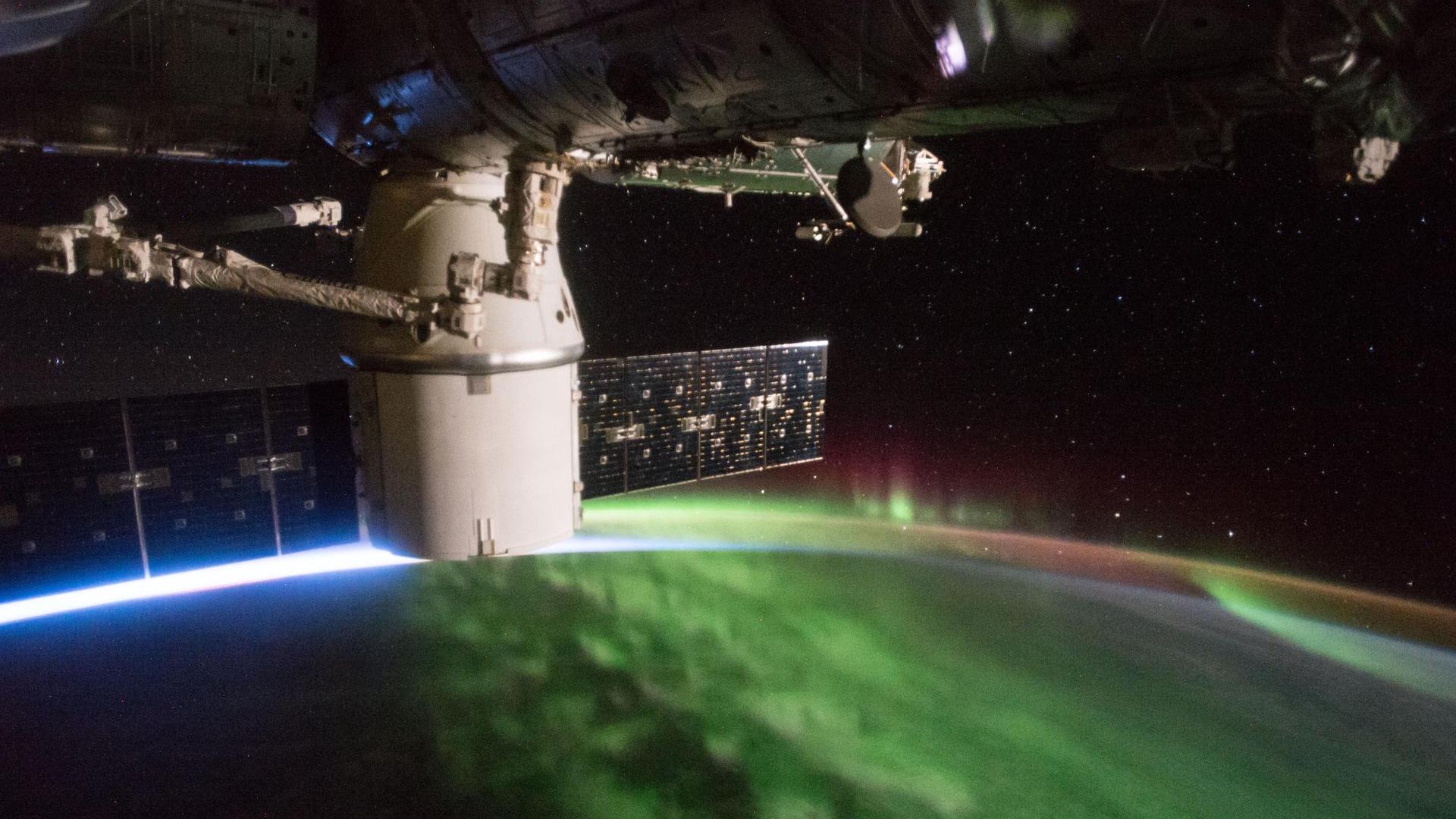
Earth is bathed in green, orange and red auroral light in this photo taken from the ISS in August 2016. In the foreground, a SpaceX Dragon resupply vehicle docks with the space station's Harmony module.
6. Blood-red aurora
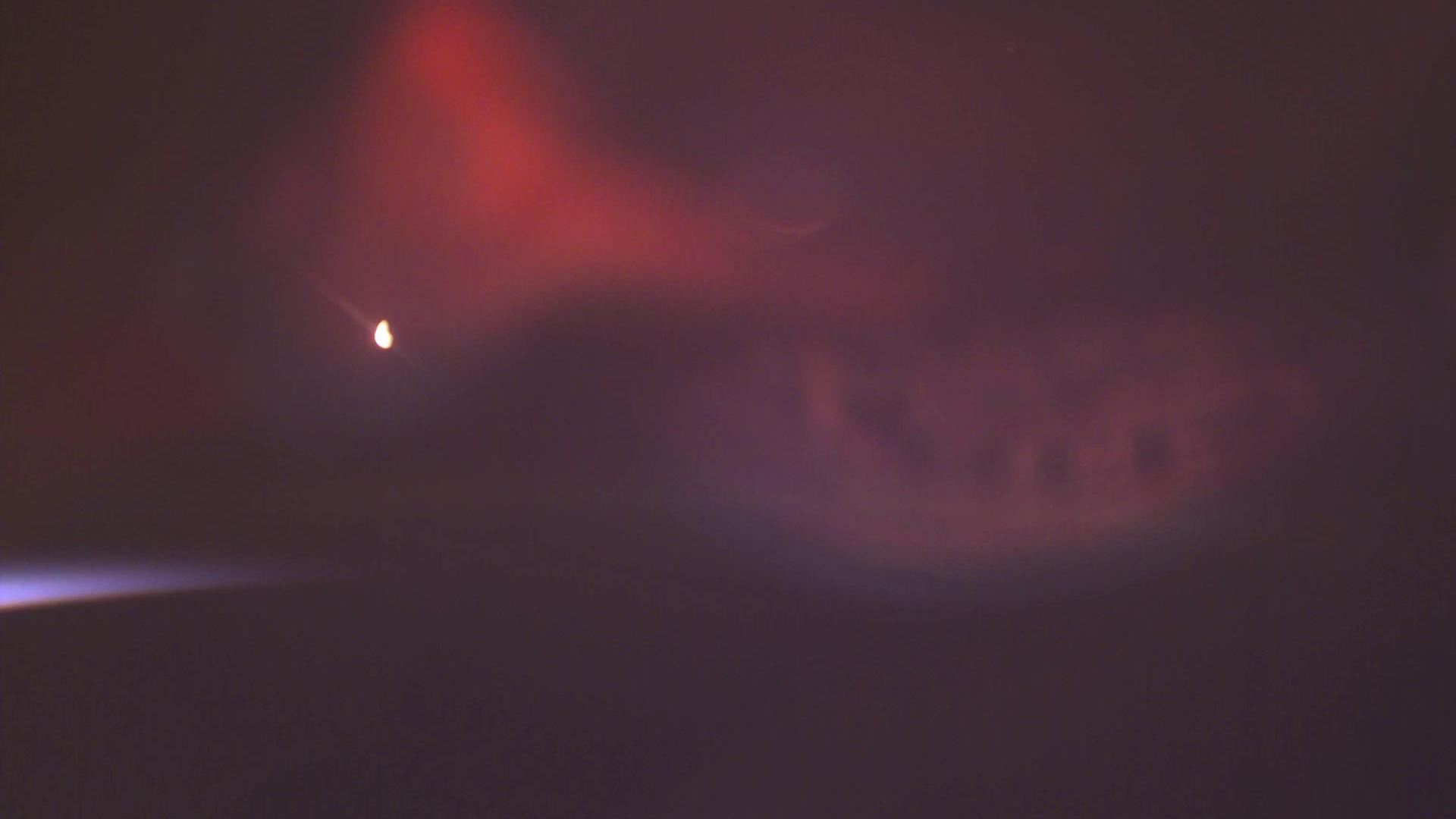
A blood-red aurora hovers over Earth in this eerie image taken from the ISS in October 2001. Red auroras occur when charged solar particles slam into oxygen atoms high in the atmosphere, briefly exciting them; when the atoms return to their unexcited state, they emit red light as a byproduct, according to NASA.
7. Sinuous southern lights
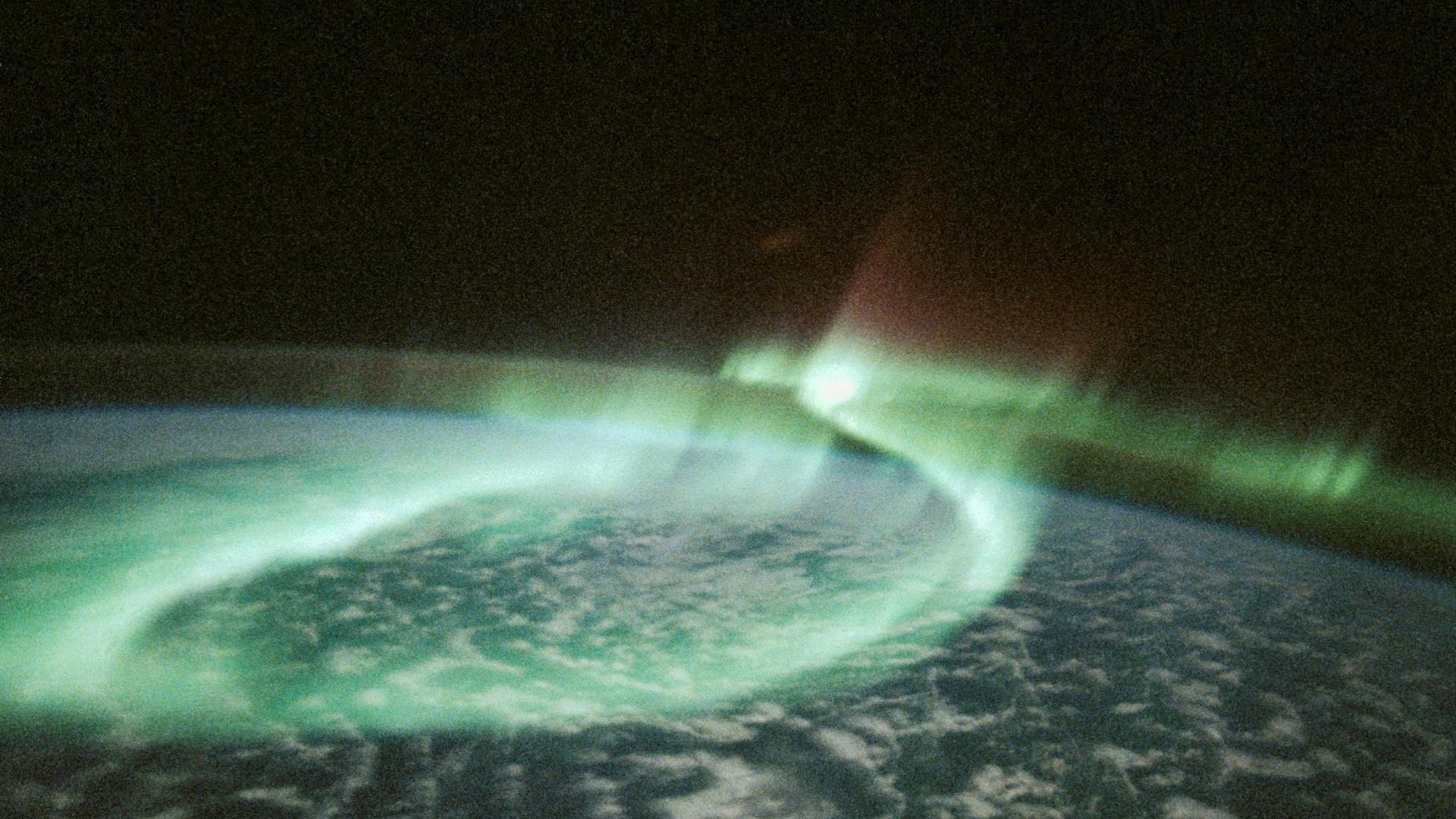
A sinuous green aurora curls through the Southern Hemisphere in this photo taken from space shuttle Discovery in spring 1991. Much of the shuttle's operations over Earth's nightside were devoted to studying auroras, according to NASA.
8. Sparkling cities
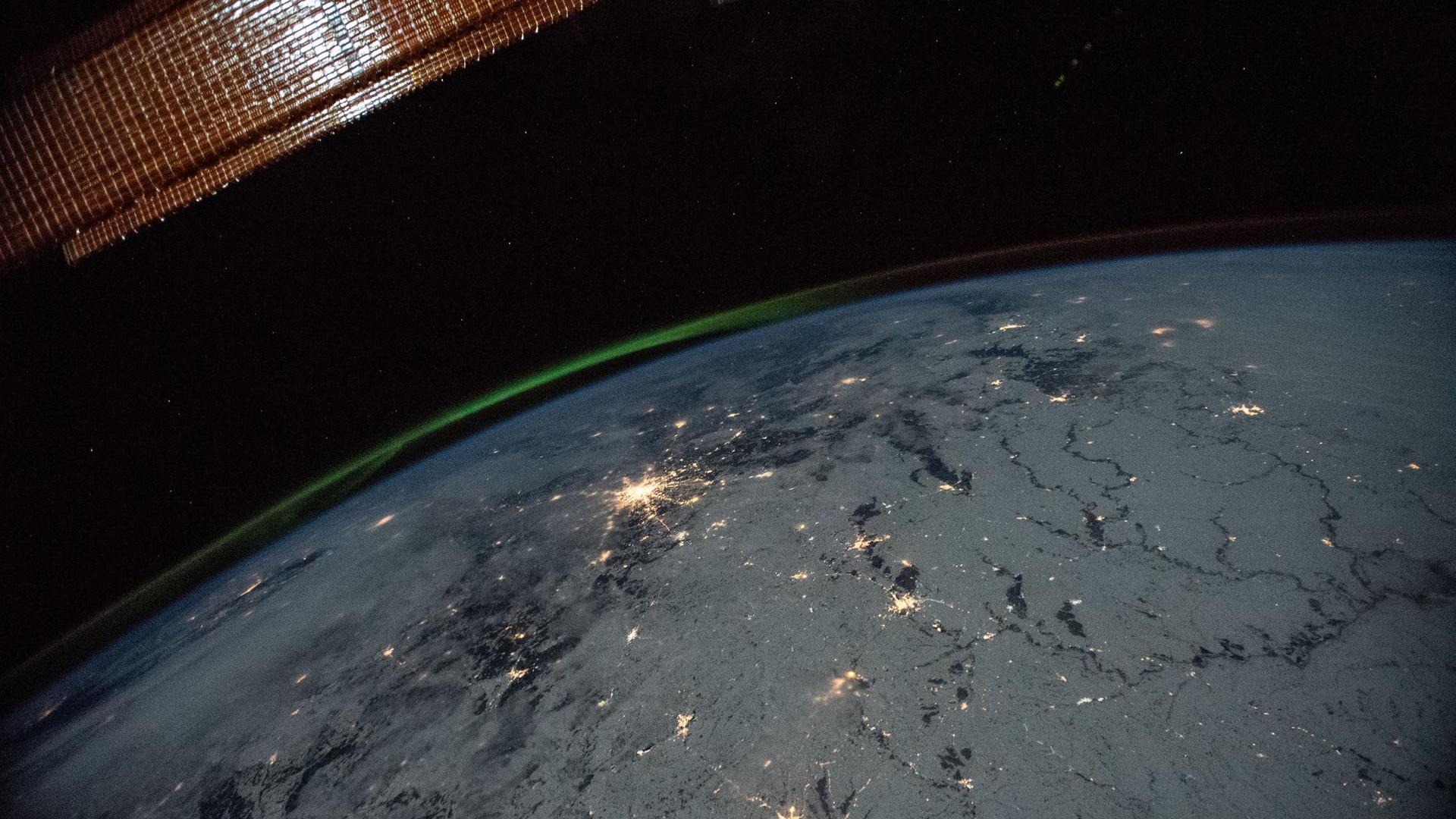
Splotchy cities in Russia and Ukraine sparkle beneath the northern lights in this photo taken from the ISS in January 2019. Vast fields of snow and ice are clearly visible from space.
9. Aurora at sunrise
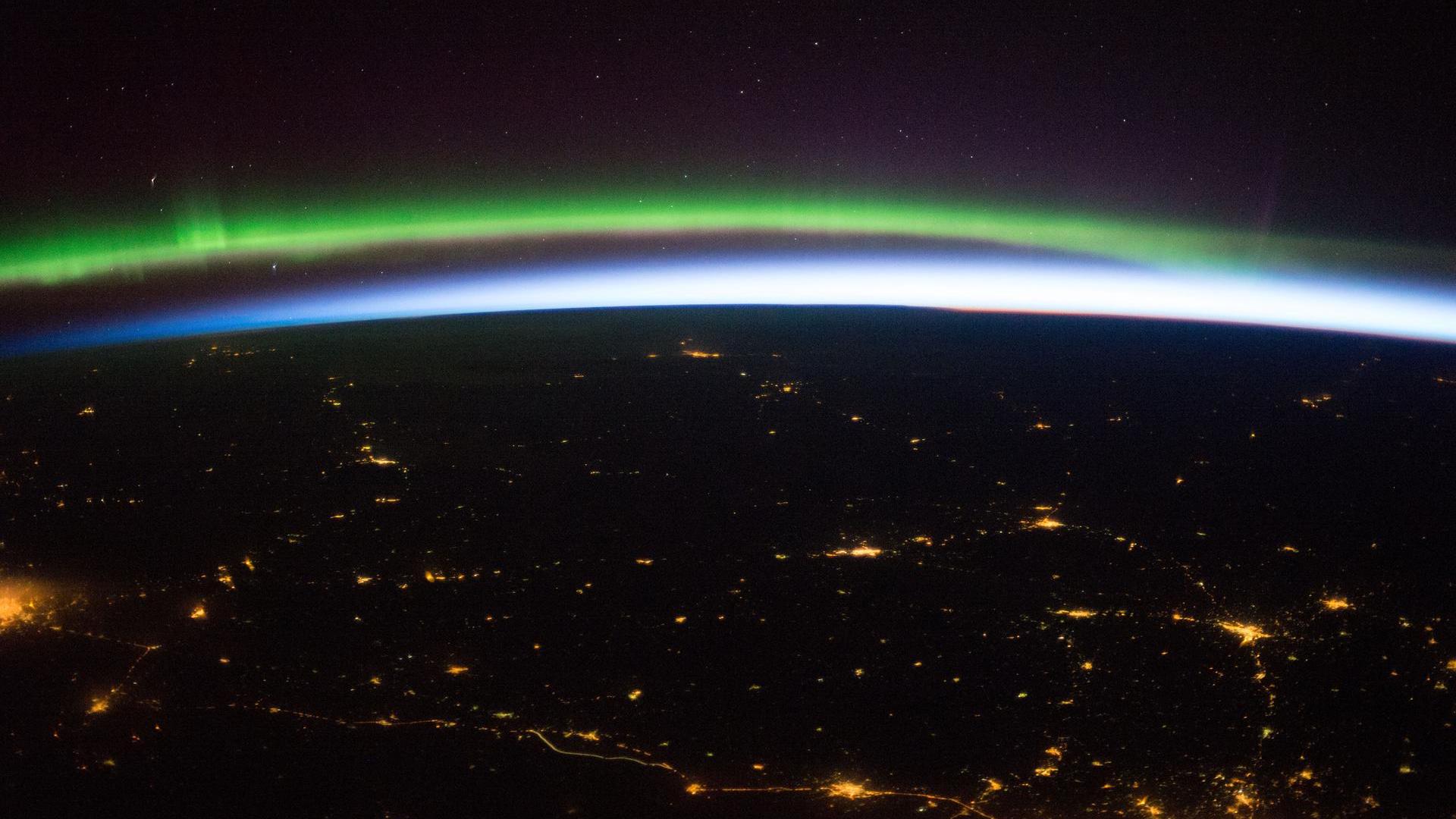
A green aurora steals the show from a blue sunrise creeping over the horizon as European cities twinkle in the predawn light. This image was captured by Italian astronaut Samantha Cristoforetti aboard the ISS in March 2015.
10. Aurora with a vortex
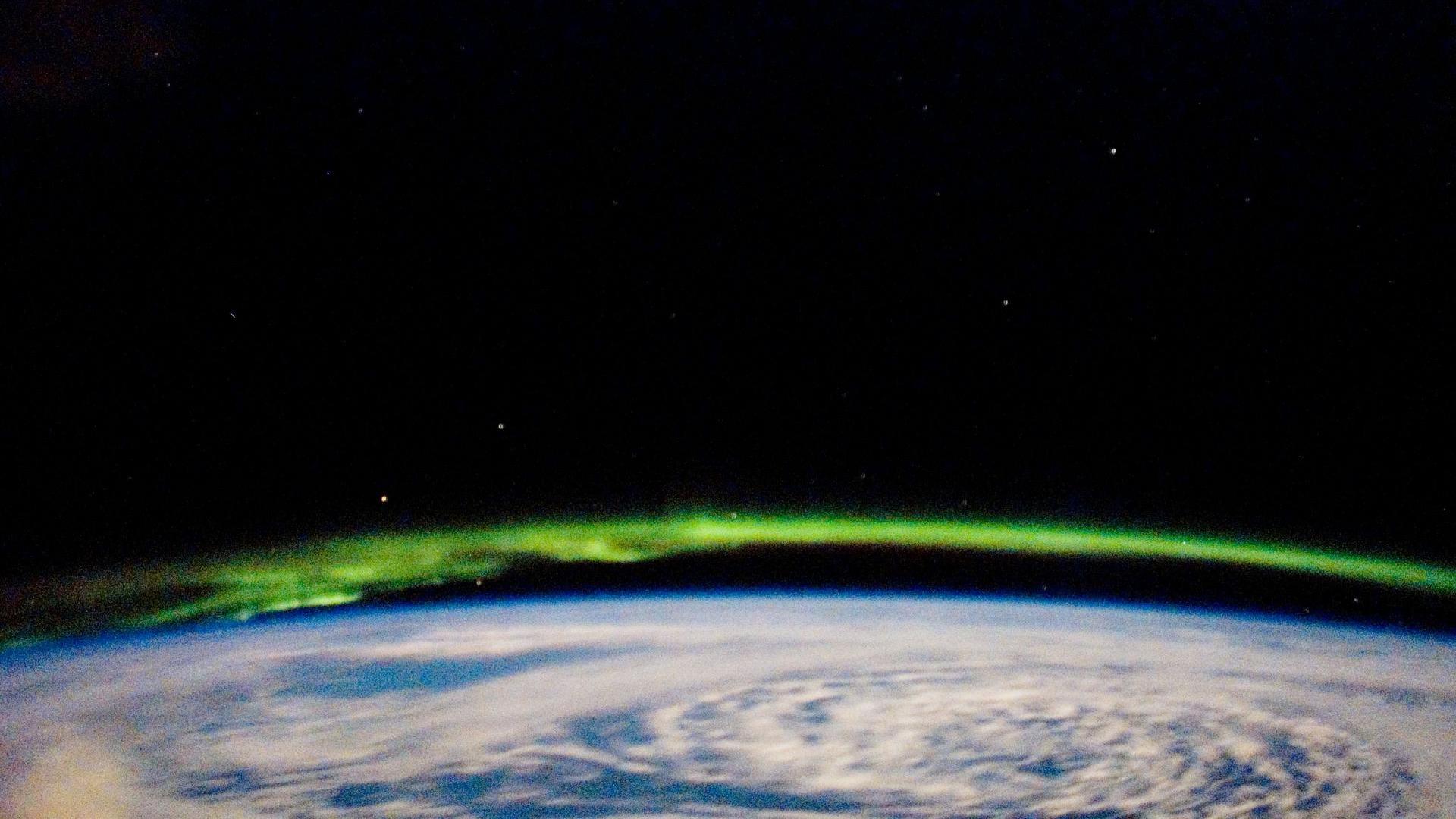
A low-pressure area, or cloud vortex, spirals over the Gulf of Alaska as the northern lights dance overhead. This image was taken by a crewmember of the Endeavor while the space shuttle was docked with the ISS in March 2008.
11. Aurora with Orion
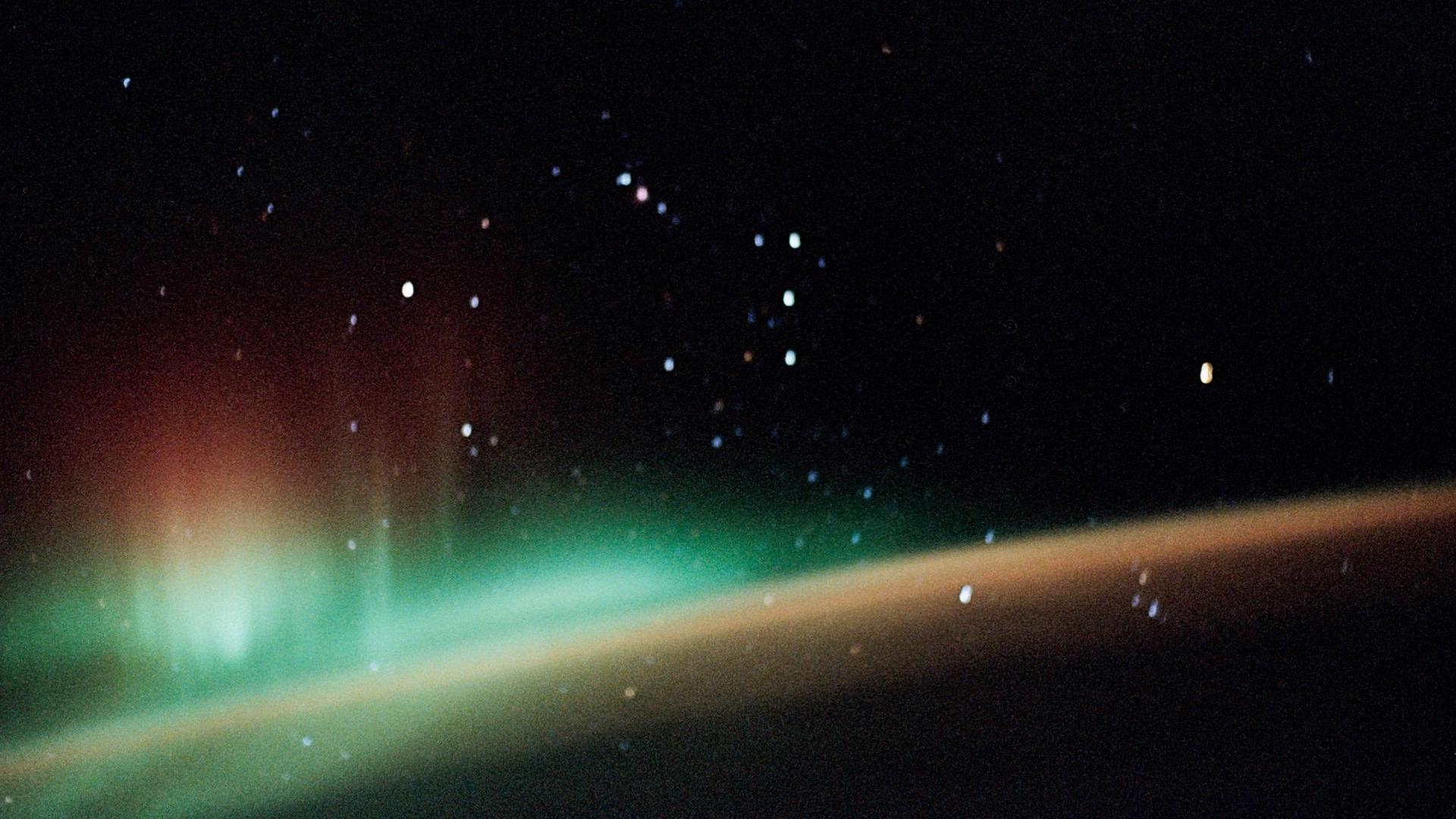
A multicolored aurora spikes toward the constellation Orion while the Southern Hemisphere sleeps below. This photo was taken from the space shuttle Endeavor in April 1994.
12. Southern lights at sunset
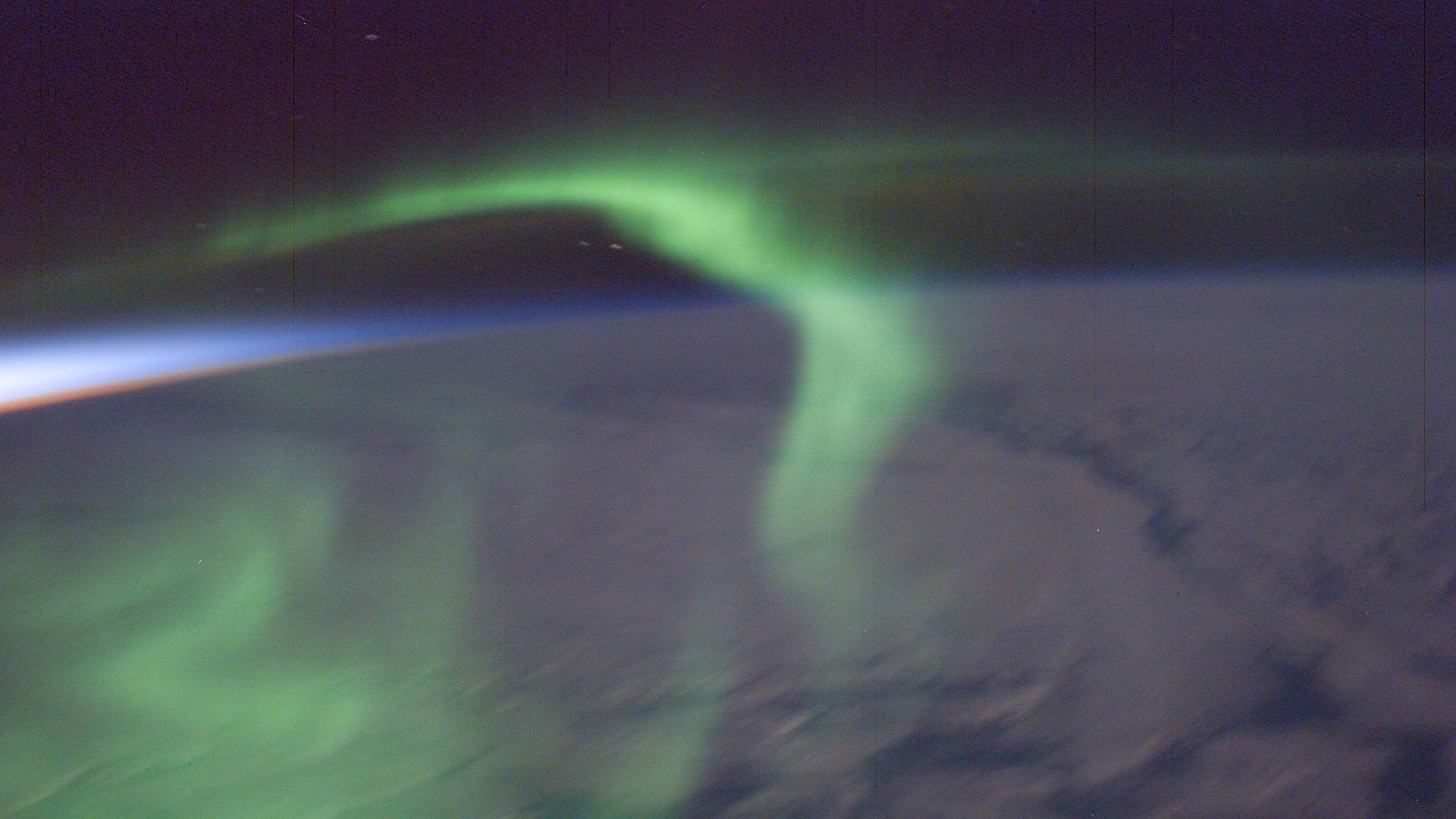
The southern lights swoop across the atmosphere in a bow shape while the waning light of the setting sun crawls over the horizon to the west. This image was taken from the ISS in February 2003.
13. Sea of green
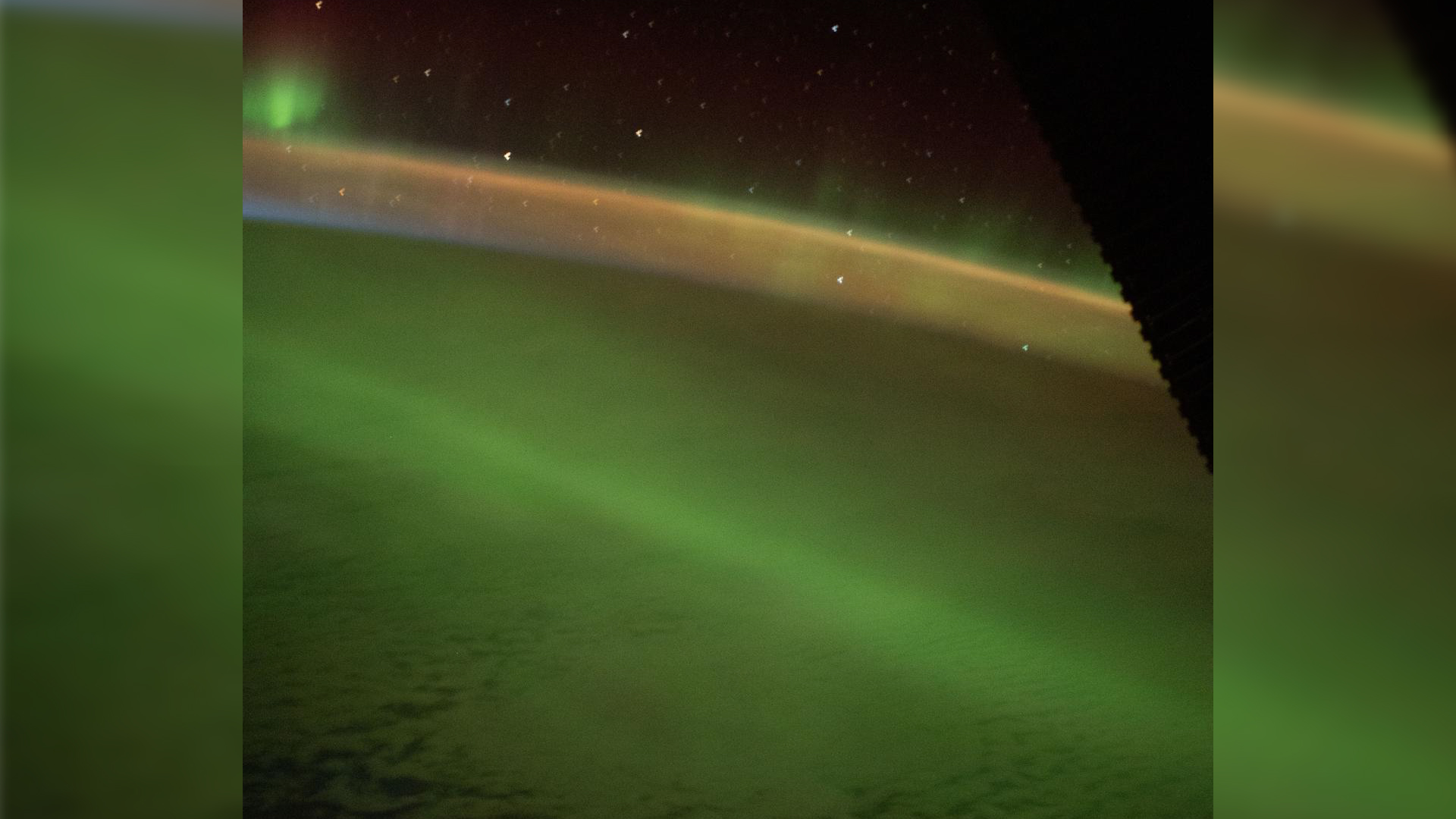
The Indian Ocean becomes a sea of green as the southern lights douse the atmosphere overhead. This image was taken by Japanese astronaut Akihiko Hoshide aboard the ISS in August 2021.
14. Waves of white
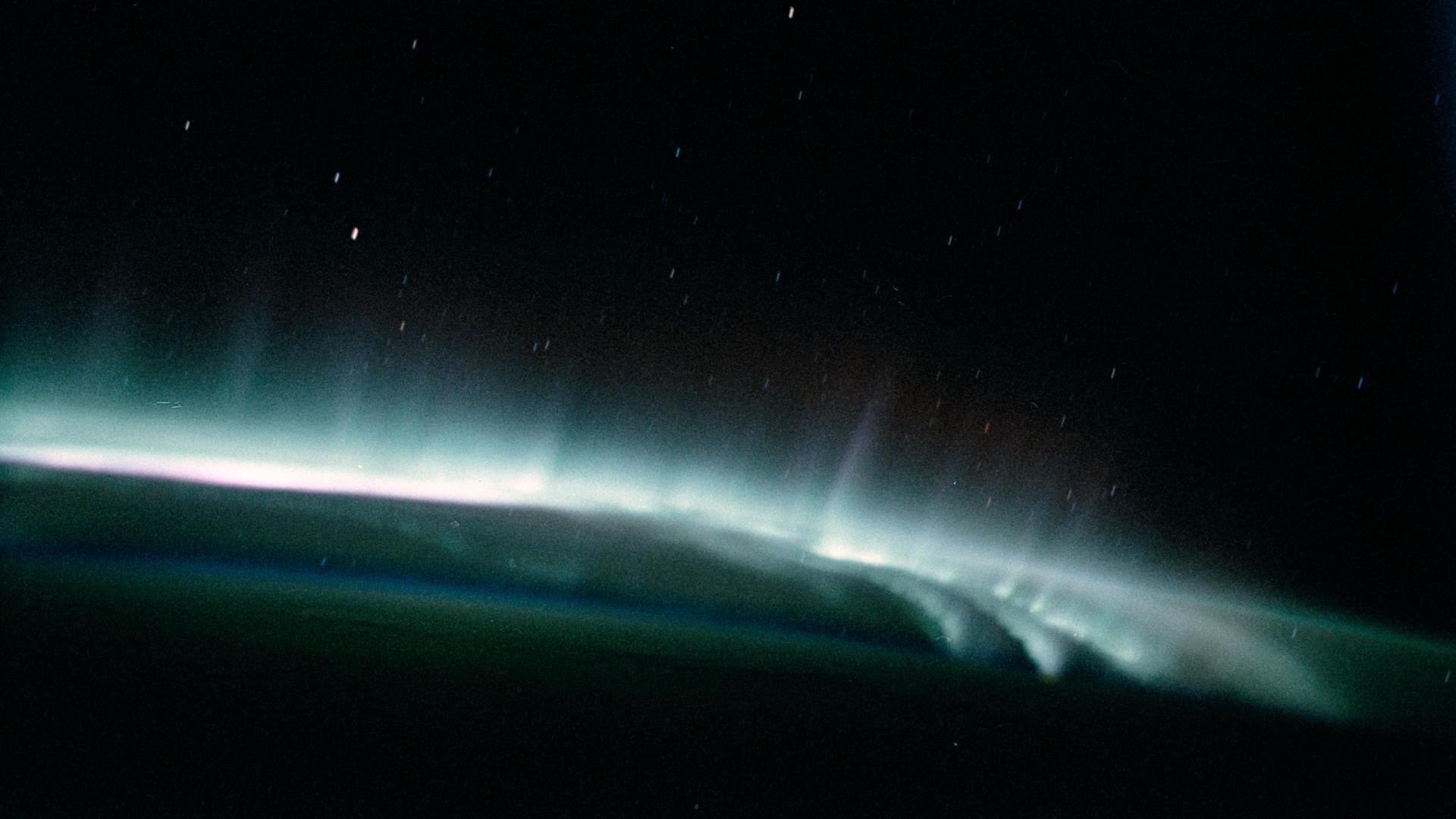
Peaks of light stab 200 miles (320 km) over the Southern Hemisphere in this dazzling image of the southern lights. Astronauts took the photo from the space shuttle Columbia in March 1994, according to NASA.
15. Corkscrew in the sky
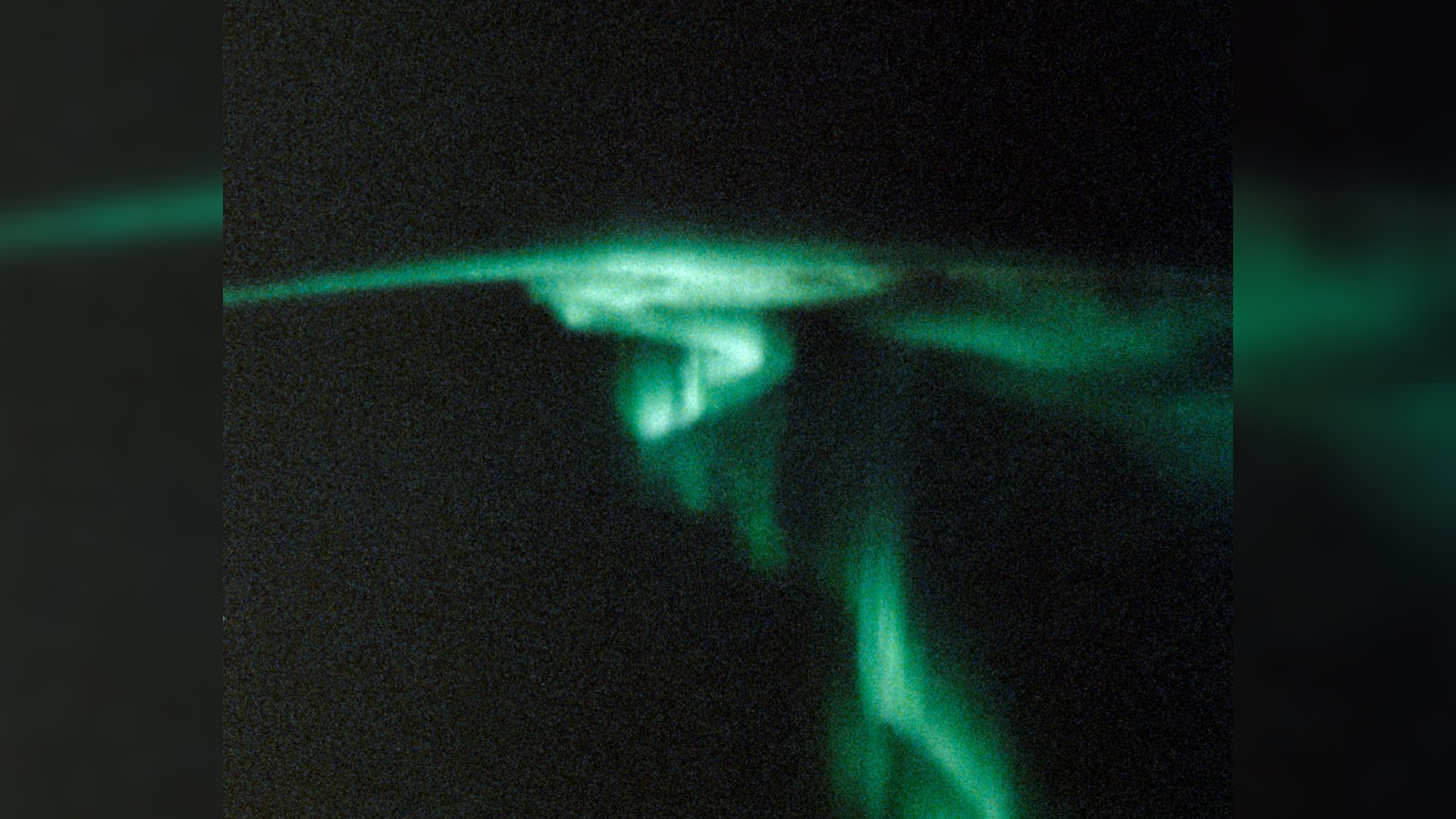
The aurora australis corkscrew over the Southern Hemisphere at night, stunning astronauts. This photo was taken by the crew of NASA's Atlantis orbiter during a nine-day mission in 1992.
16. Space station over a green planet
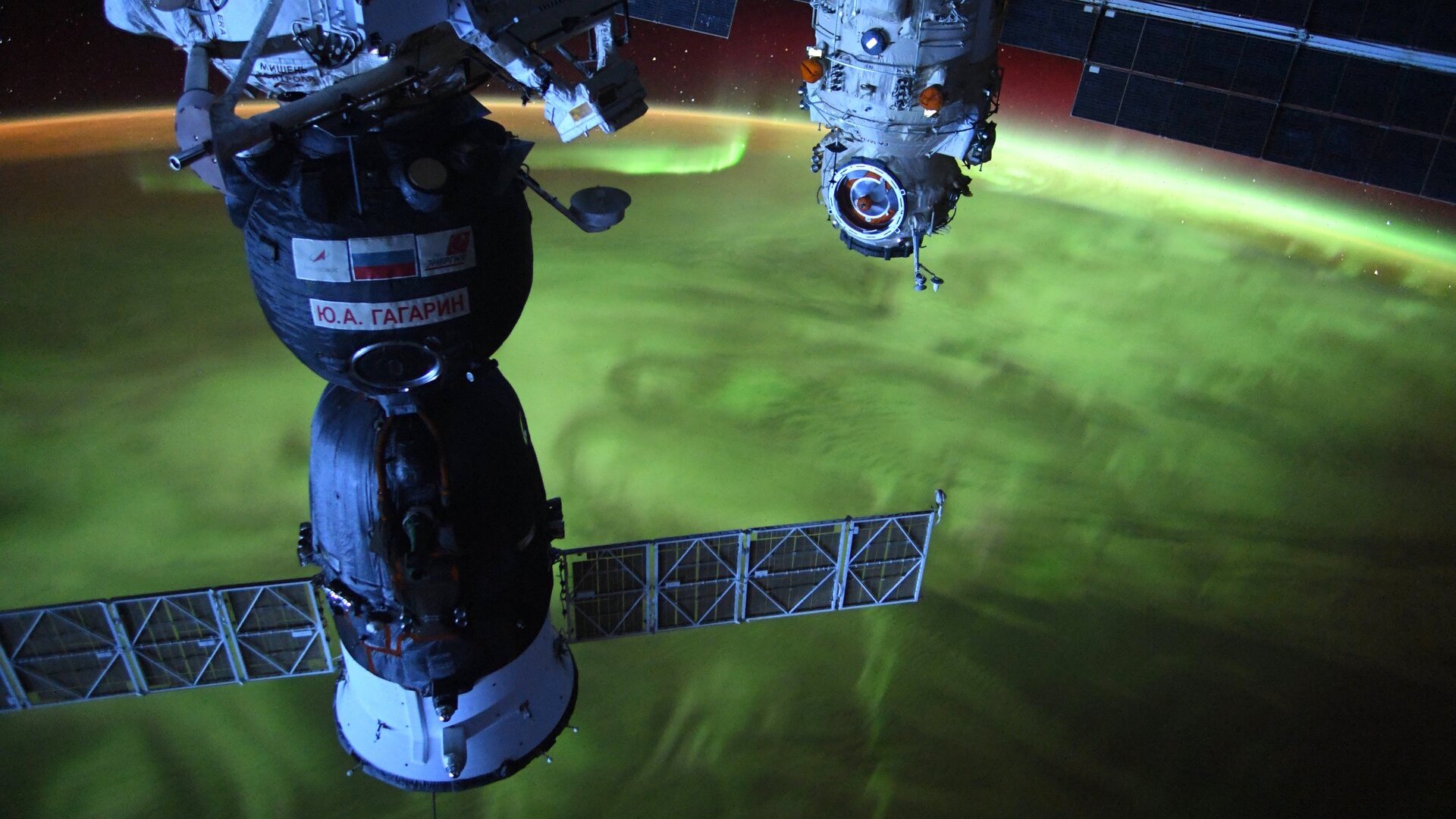
Two modules of the ISS gaze down at a stormy sea of green auroras below. This image was taken by European Space Agency (ESA) astronaut Thomas Pesquet in August 2021, during his tenure aboard the ISS.
17. Rainbow in the atmosphere

Gorgeous bands of red, green and orange auroras slice across the Southern Hemisphere in this epic photo snapped by astronaut Tim Peake. Peake took this photo from aboard the ISS in early 2016.
18. Northern lights before Christmas
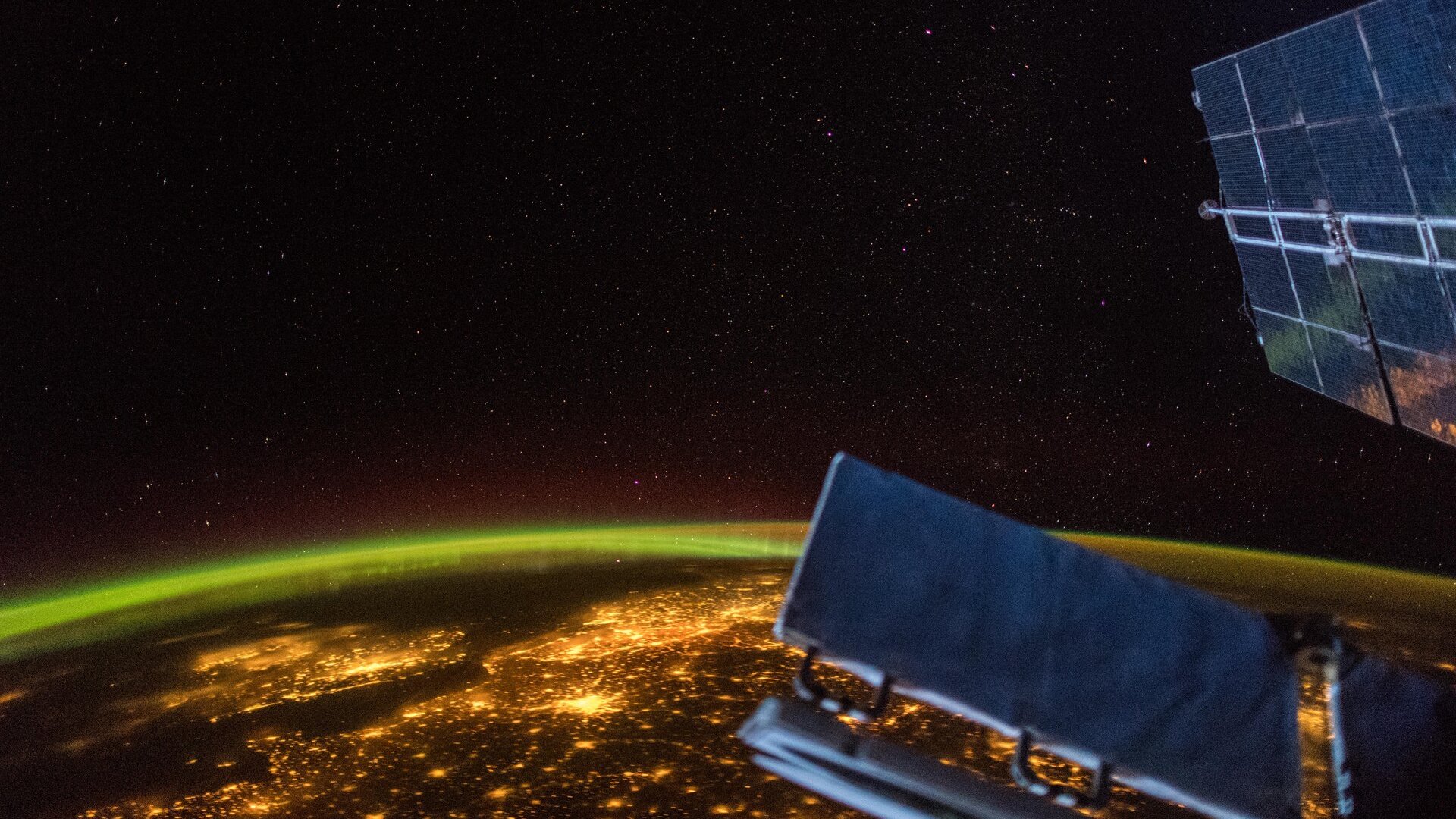
Golden European cities shimmer at Christmastime in this December 2018 photo of the northern lights. ESA astronaut Alexander Gerst caught this gorgeous image from aboard the ISS.
19. "6 nose prints on the window"
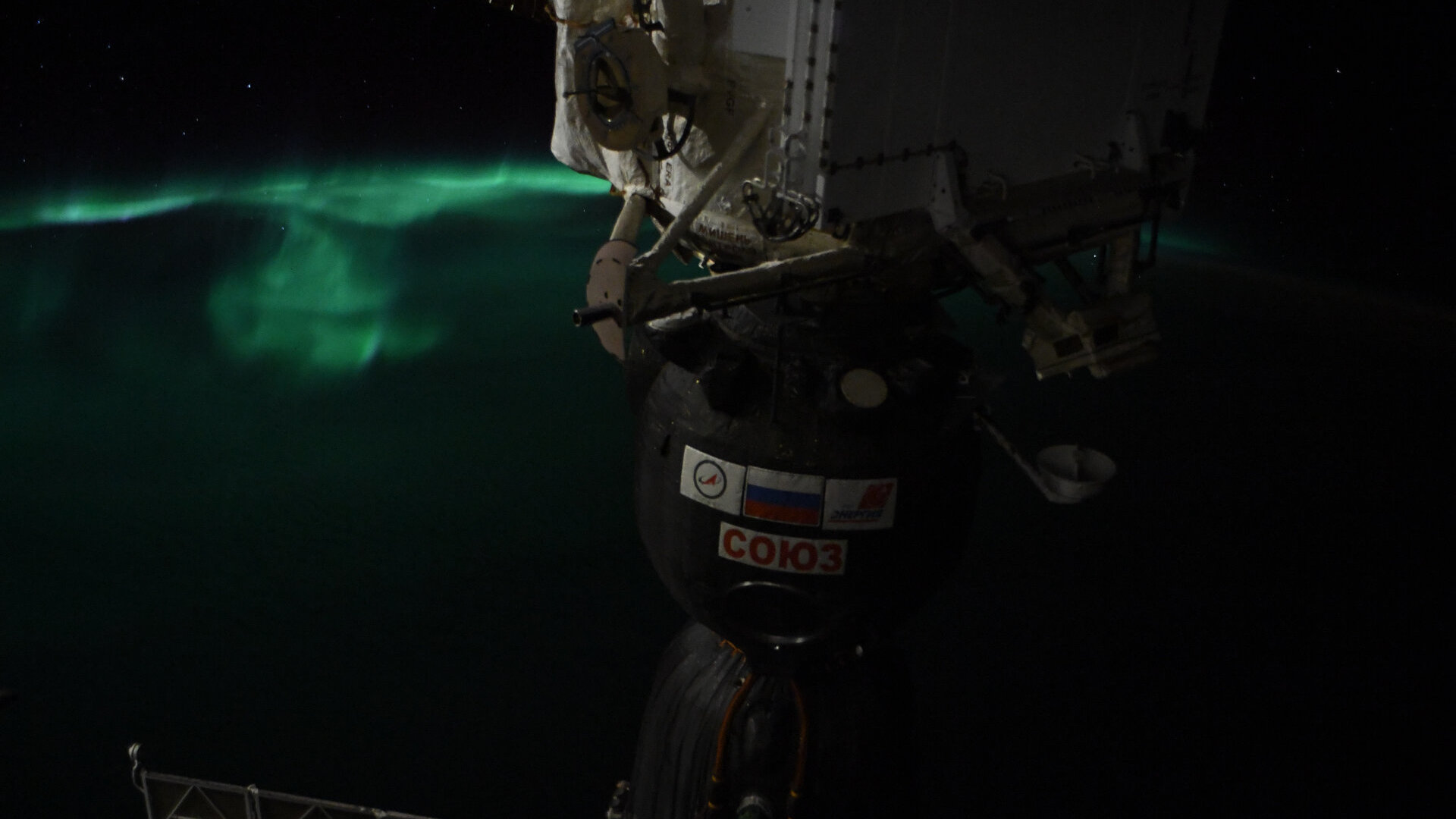
The dark ocean broods beneath the green southern lights in this image snapped from the ISS in June 2018. "Saw my first Aurora Australis on this mission today, my silent magical old friend," ESA astronaut Alexander Gerst, who took the photo, wrote on social media. "6 nose prints on the window, despite being busy with science."
20. Aurora over Canada
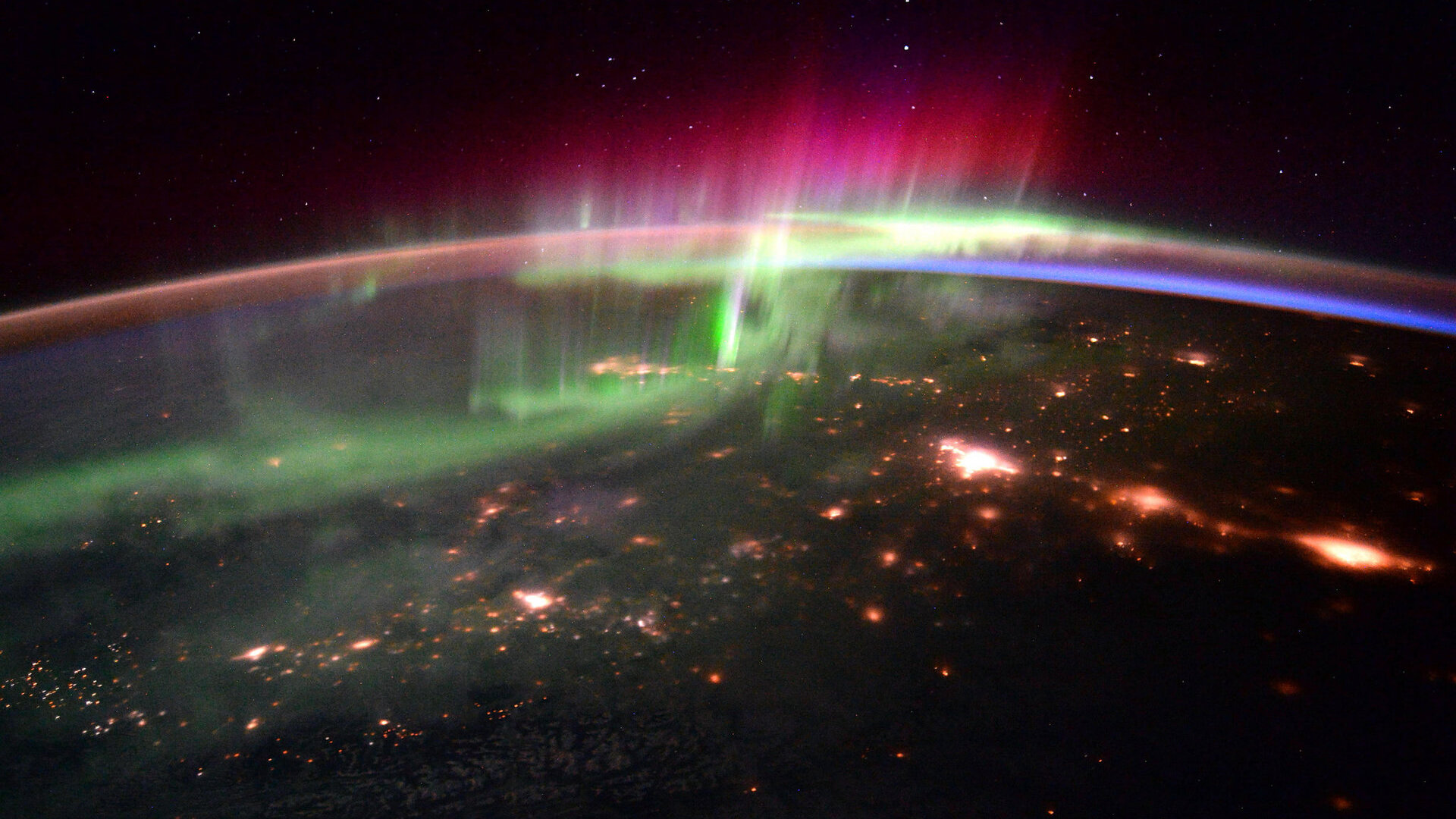
A colorful display of northern lights dance over Canada in this January 2016 photo taken by ESA astronaut Tim Peake during his stay aboard the ISS. The dark foreground shows Banff and Jasper national parks, while the bright city lights of Edmonton and Calgary glow in the distance.
21. Waterfall of light
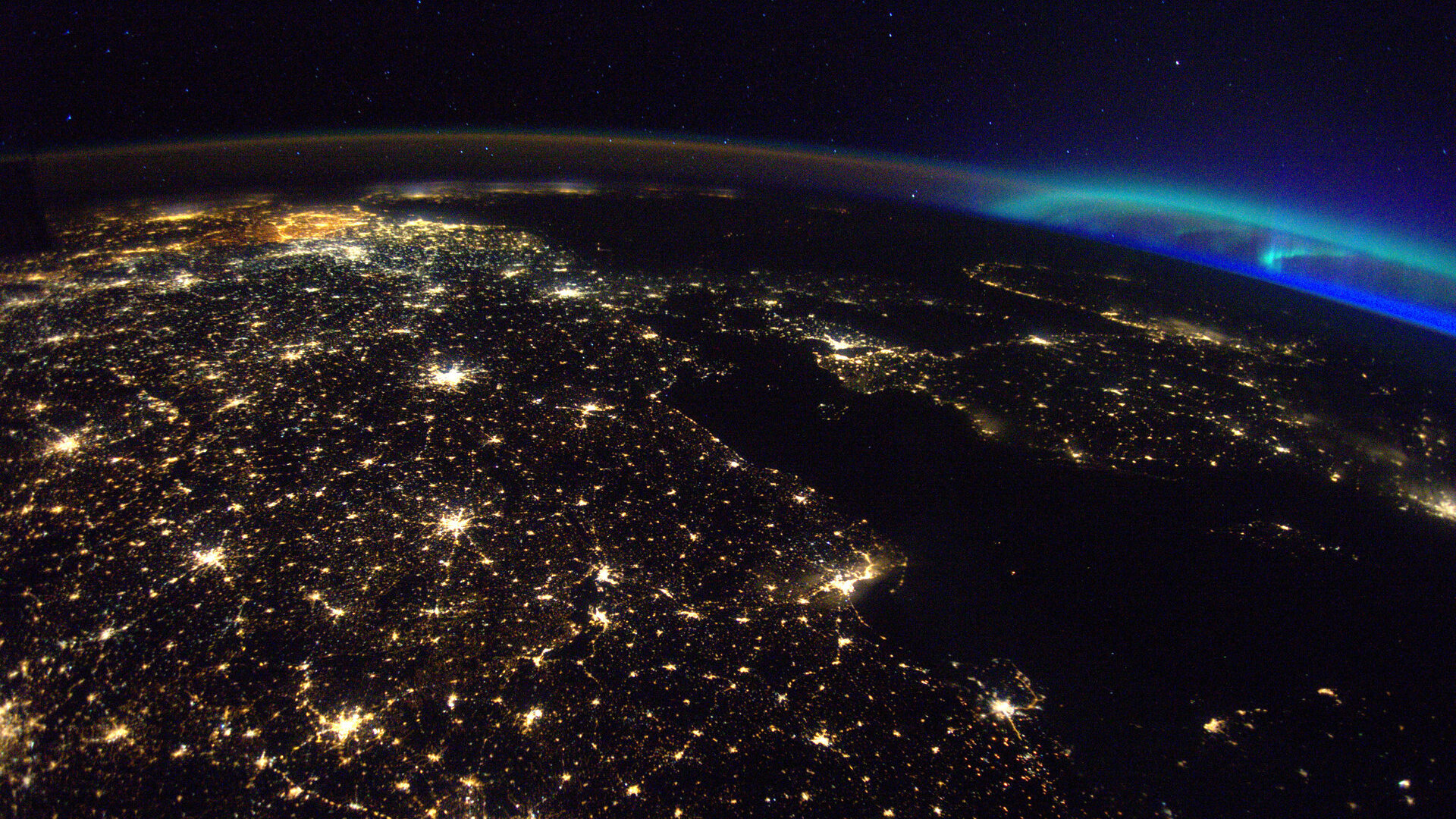
Blue and green auroras crash over the horizon like a waterfall of light in this evocative image of Europe captured by ESA astronaut Thomas Pesquet in 2017. The waning glow of the setting sun can be seen far in the background.
22. "I can't look away"
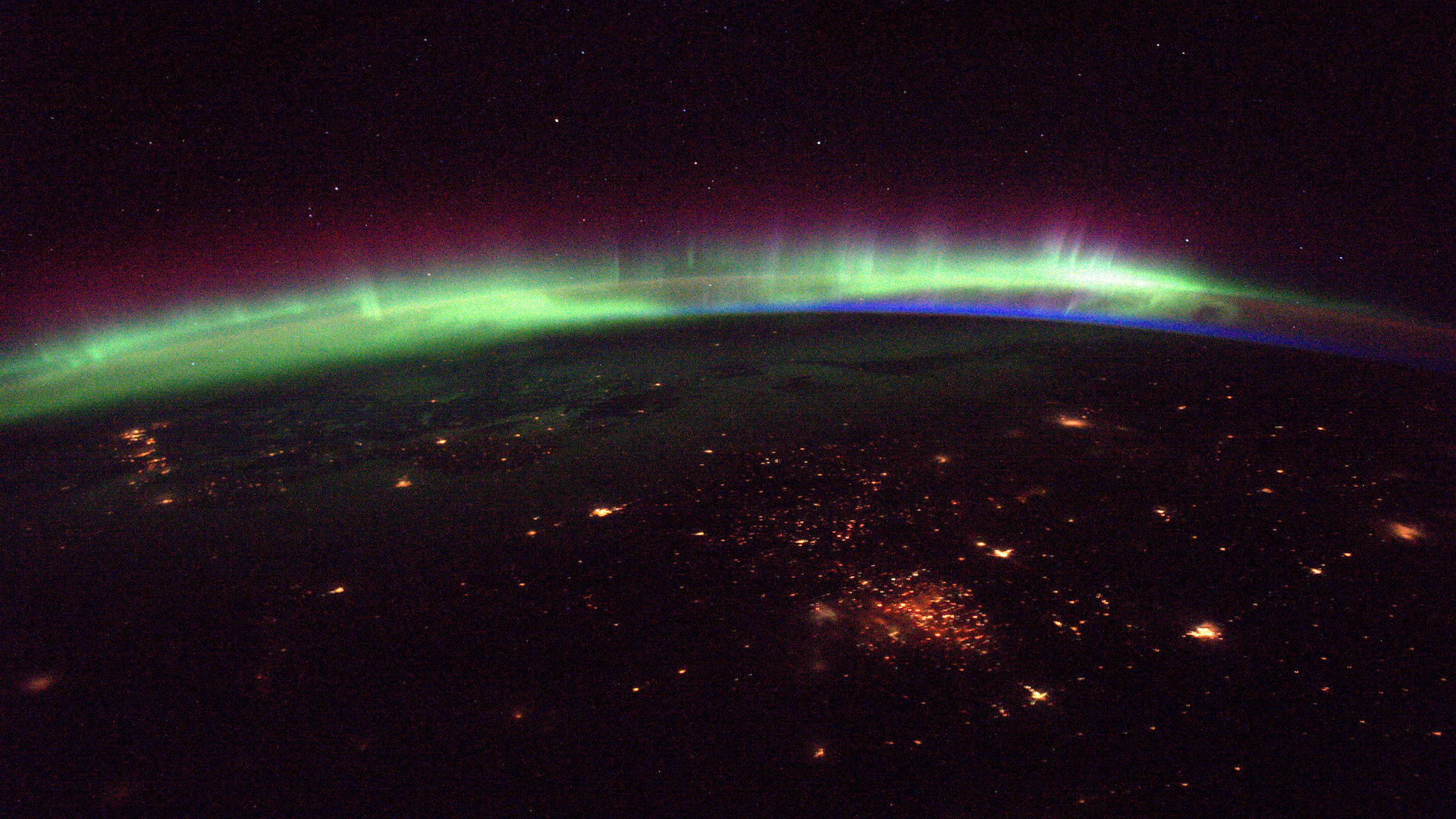
A city smolders in the foreground while colorful auroras peek over the horizon. "The view at night recently has been simply magnificent," ESA astronaut Thomas Pesquet, who snapped the photo, wrote in 2017. "Few clouds, intense auroras. I can't look away from the windows."
23. "Thick, green fog"
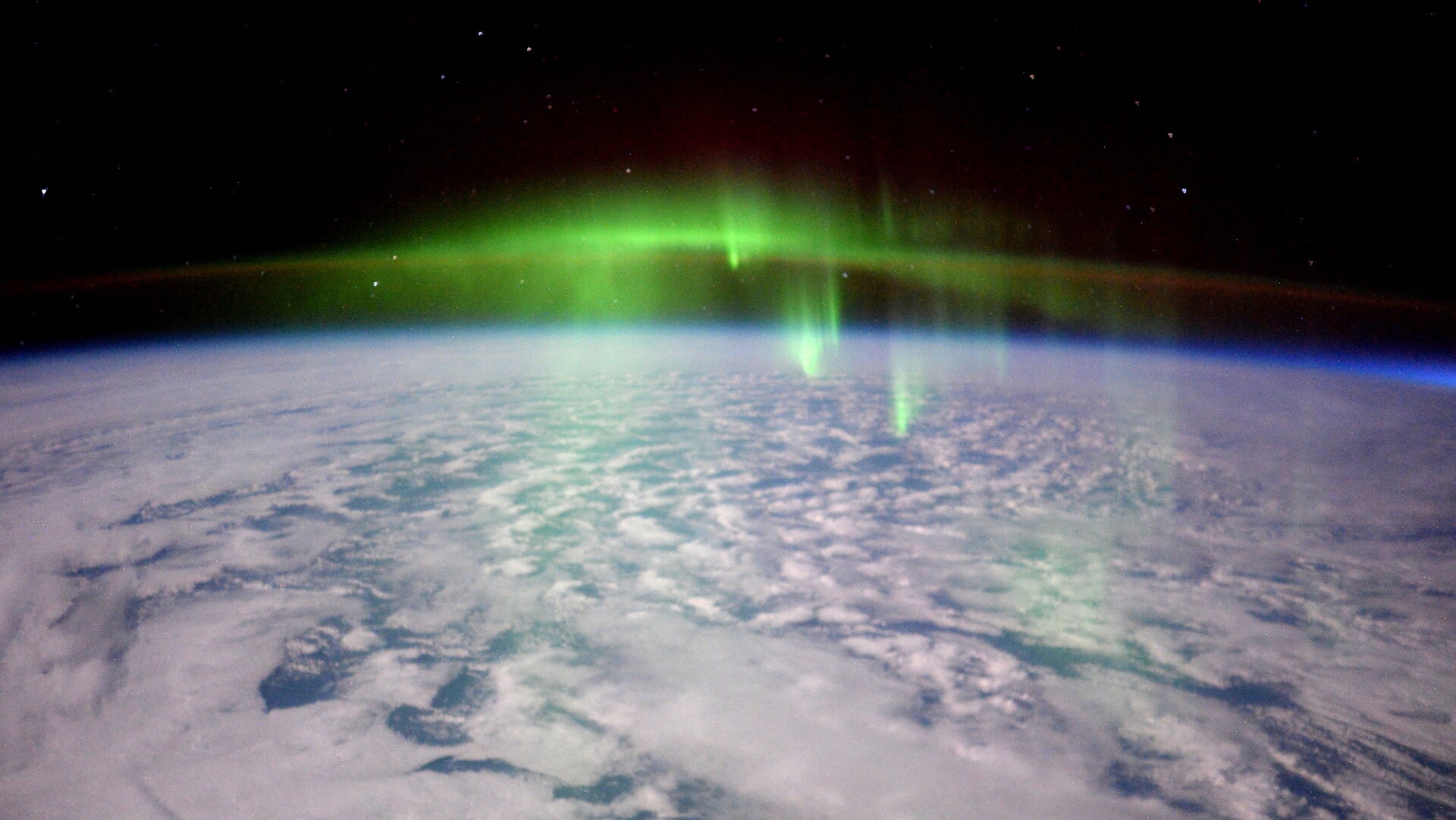
ESA astronaut Tim Peake also took this haunting photo as the ISS passed directly through a curtain of green auroras in 2016. "The ISS just passed straight through a thick green fog of aurora," Peake wrote when he posted the photo. "Eerie but very beautiful."
24. Space station bathed in moonlight
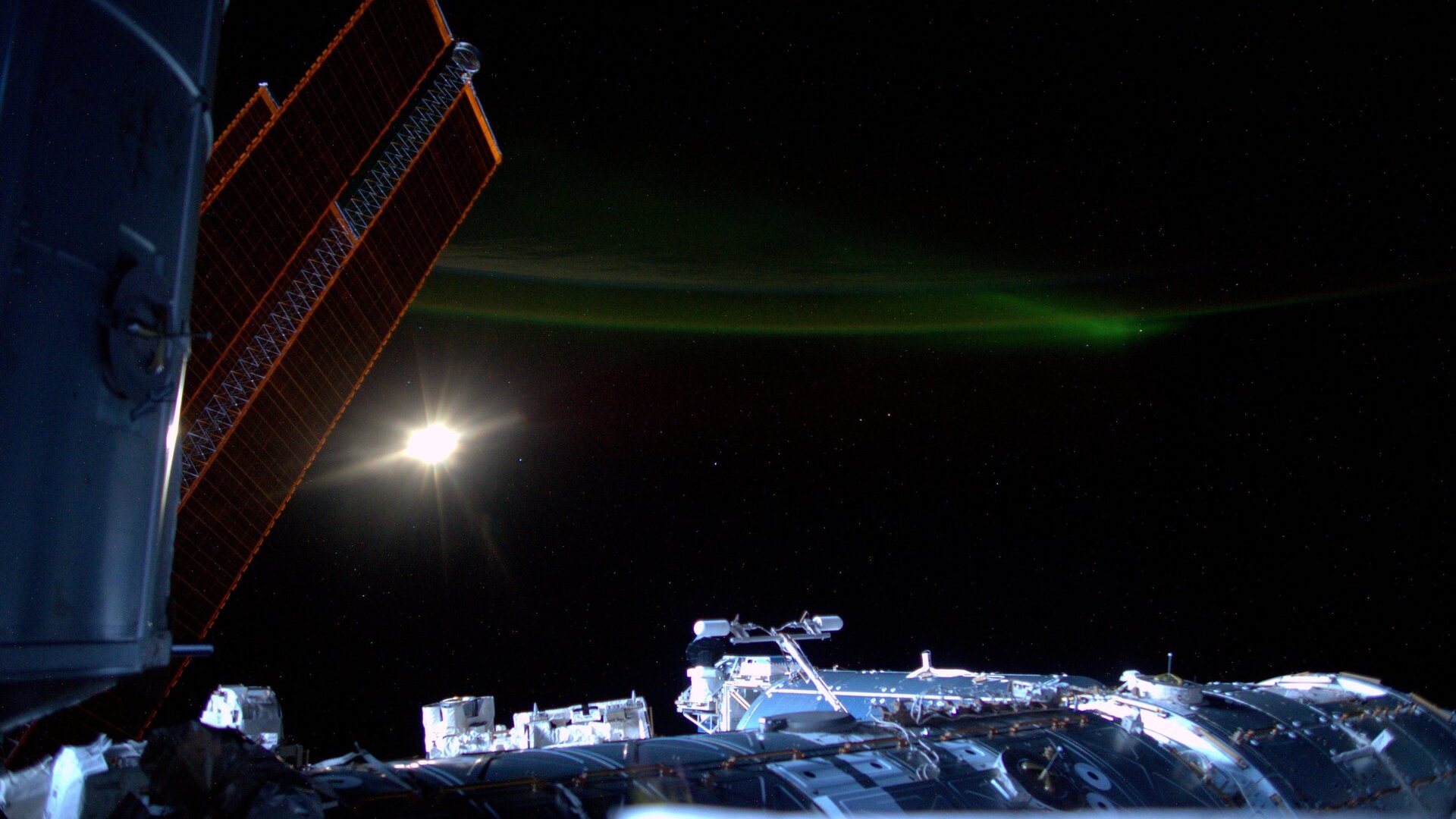
ESA astronaut Samantha Cristoforetti caught this upside-down image of the northern lights while working aboard the ISS in 2015. "An aurora in the distance and the Space Station bathed in moonlight," Cristoforetti wrote on social media at the time.
25. Lighting up the clouds
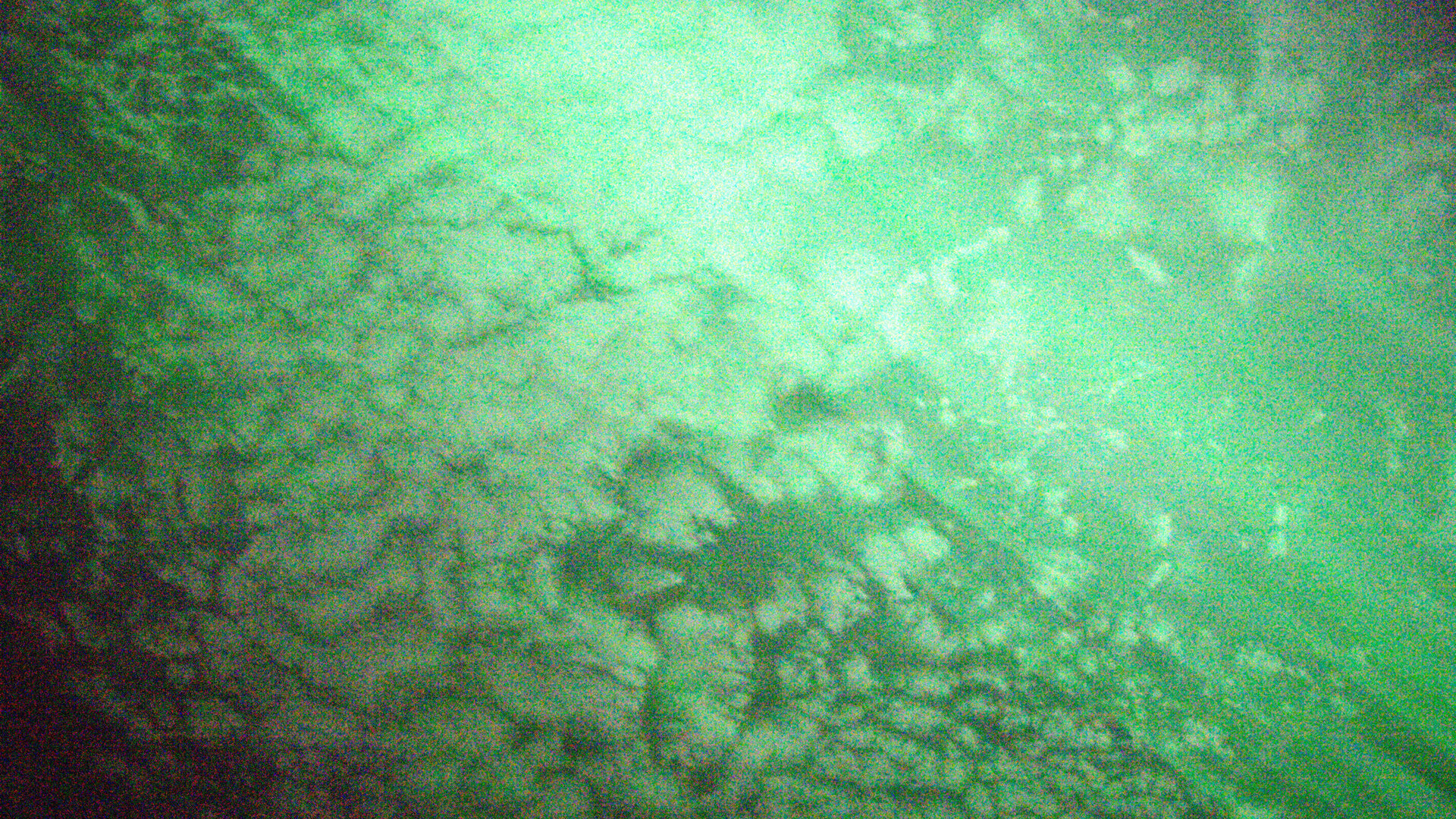
Looking straight down from the ISS in 2015, ESA astronaut Alexander Gerst took this photo of a green aurora washing over the clouds of Earth. "An aurora lighting up the clouds beneath us," Gerst wrote on social media.
26. Blue planet
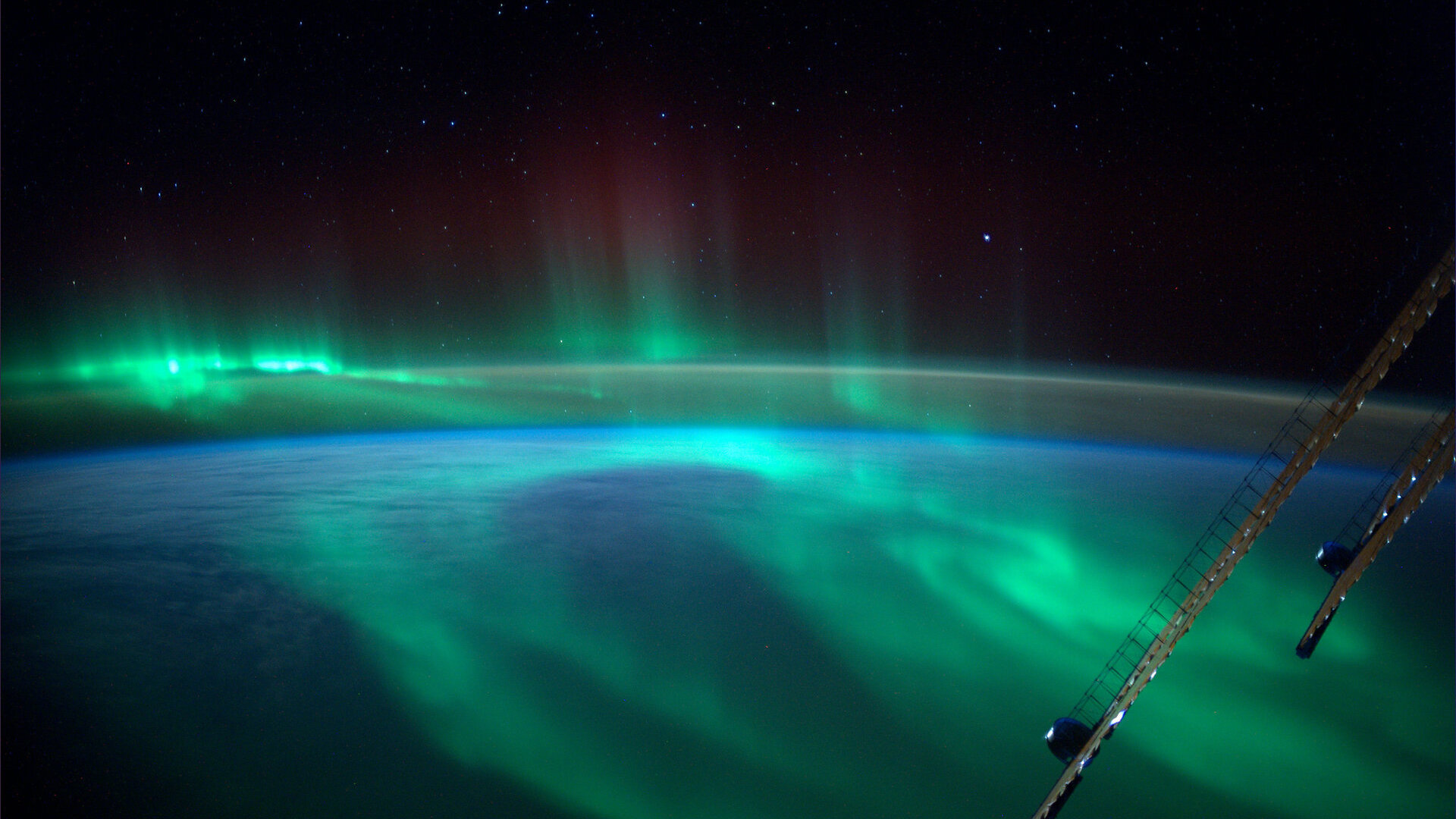
Green and red auroras swoop over the clouds and ocean in this beautiful image that shows off Earth's reputation as the blue planet. ESA astronaut Alexander Gerst snapped this image from the ISS in 2014.
27. Hello from Canadarm2
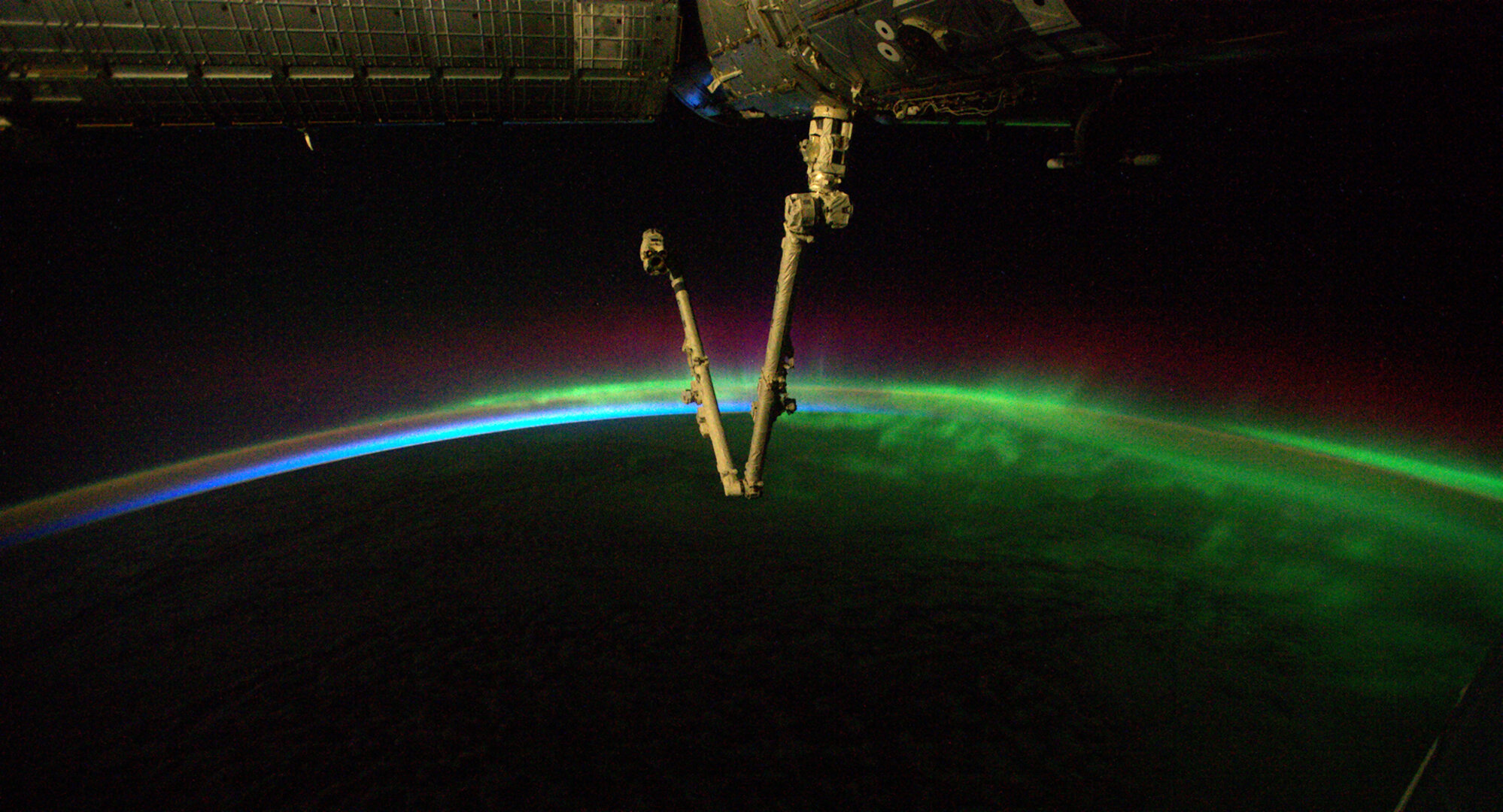
The ISS' Canadarm2 robotic arm curls up, seemingly waving at the dazzling auroras below. The last remnants of disappearing sunlight can be seen far to the left in this 2014 photo.
28. Antarctic magic
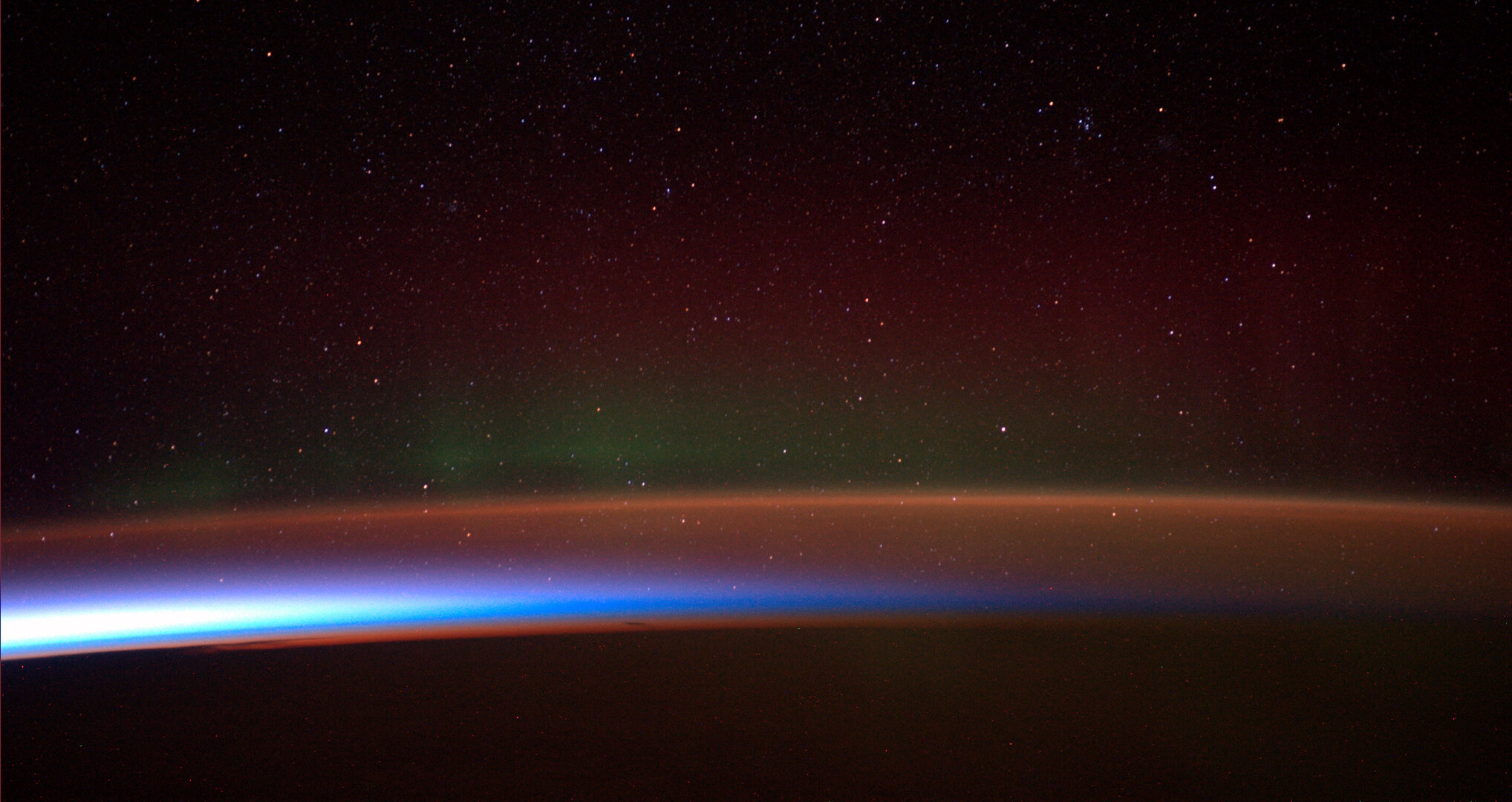
The Antarctic aurora waves farewell as the sun begins to rise. "Antarctic Aurora fleeing from sunrise," ESA astronaut Alexander Gerst wrote about this 2014 photo. "I have rarely seen something more magical in my life!"
29. Green aurora, green isles
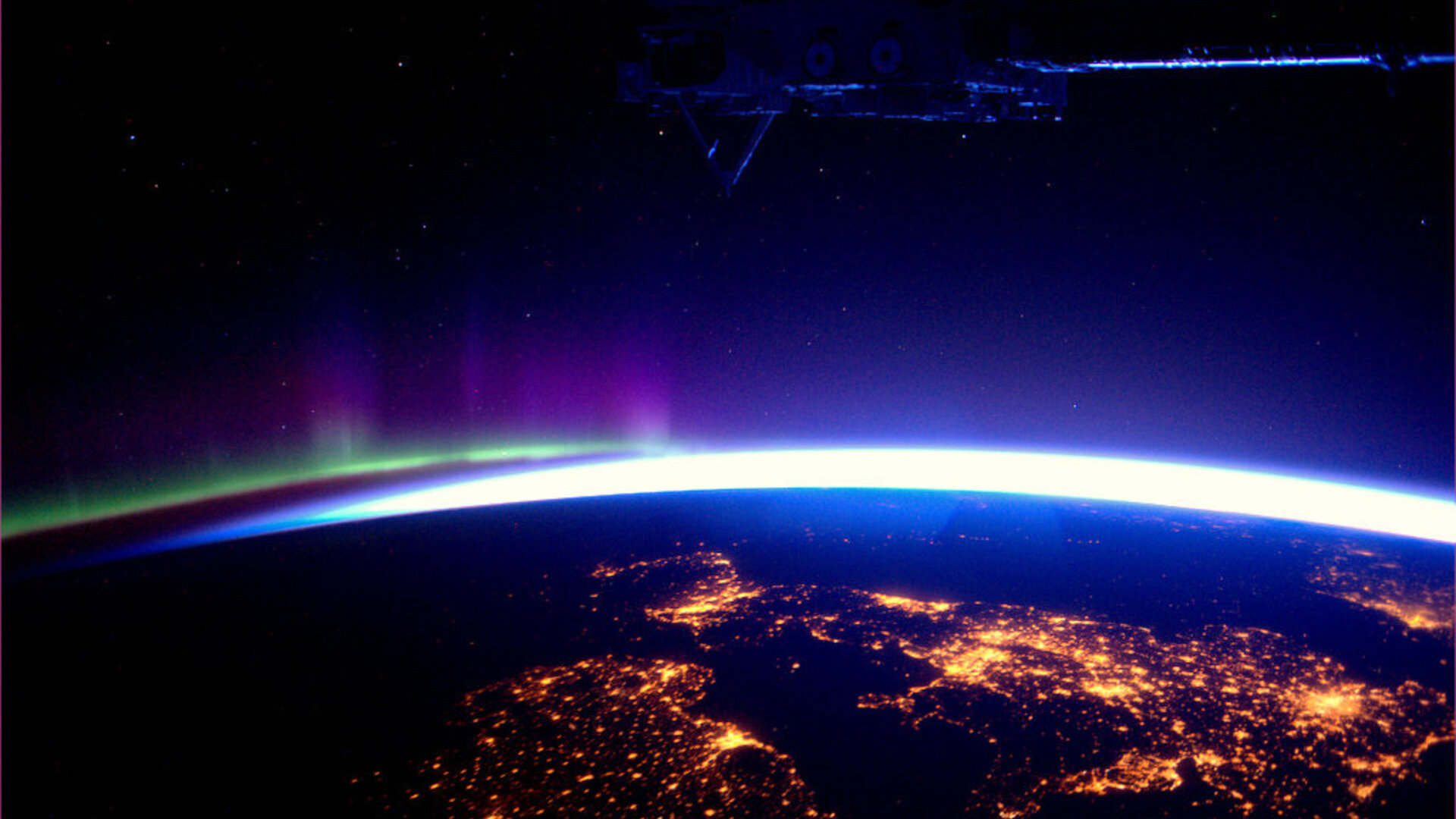
Ireland and the U.K. glow under green and purple auroras in this brilliant 2012 image. ESA astronaut André Kuipers snapped this image during his mission aboard the ISS in 2012.
30. Aurora with the Milky Way
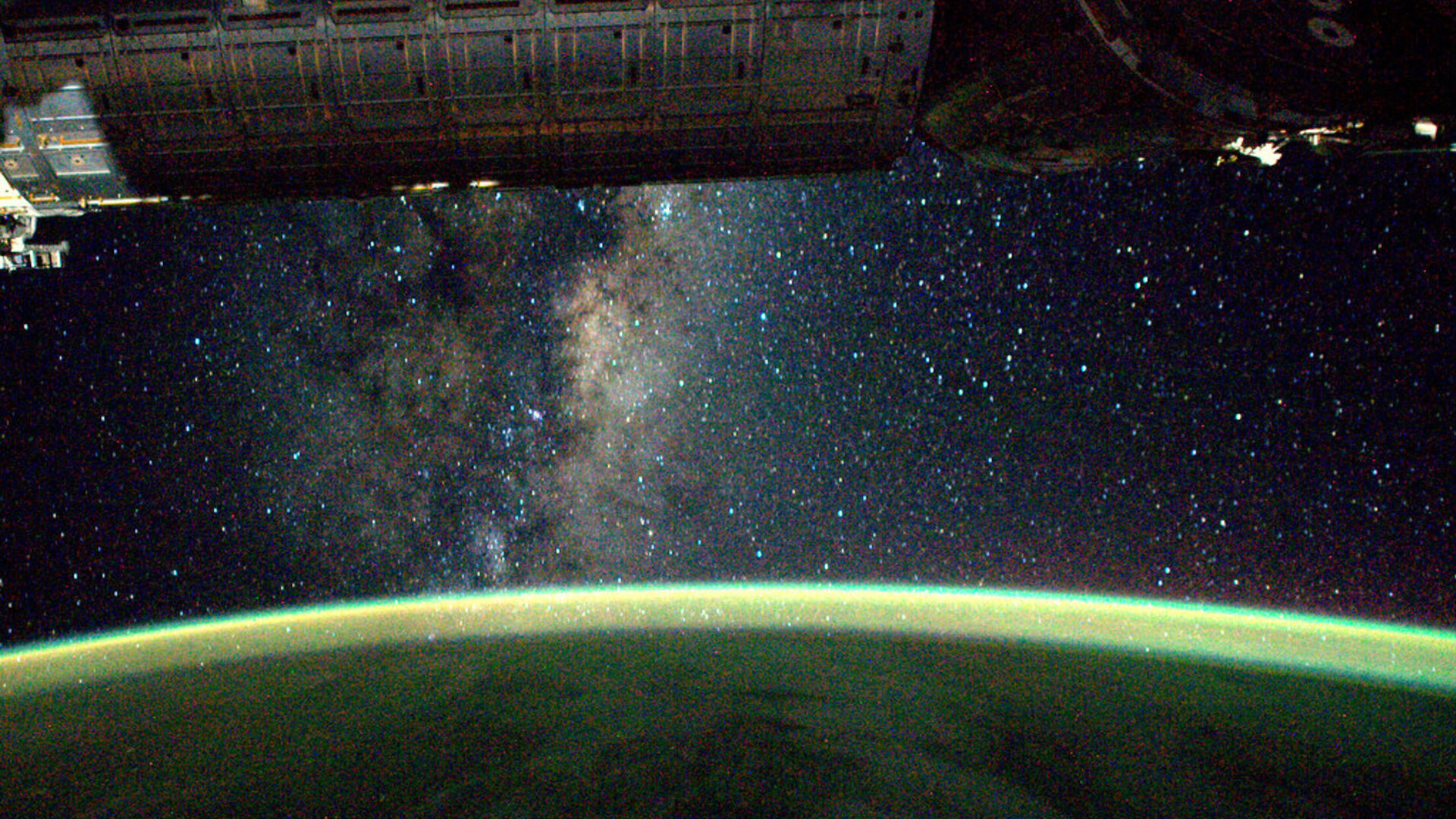
The stars of the Milky Way shimmer above a green aurora in this 2012 photo. Astronaut Andre Kuipers also took this photo during his mission aboard the ISS, part of which can be seen at the top of the image.
31. Upside-down reach
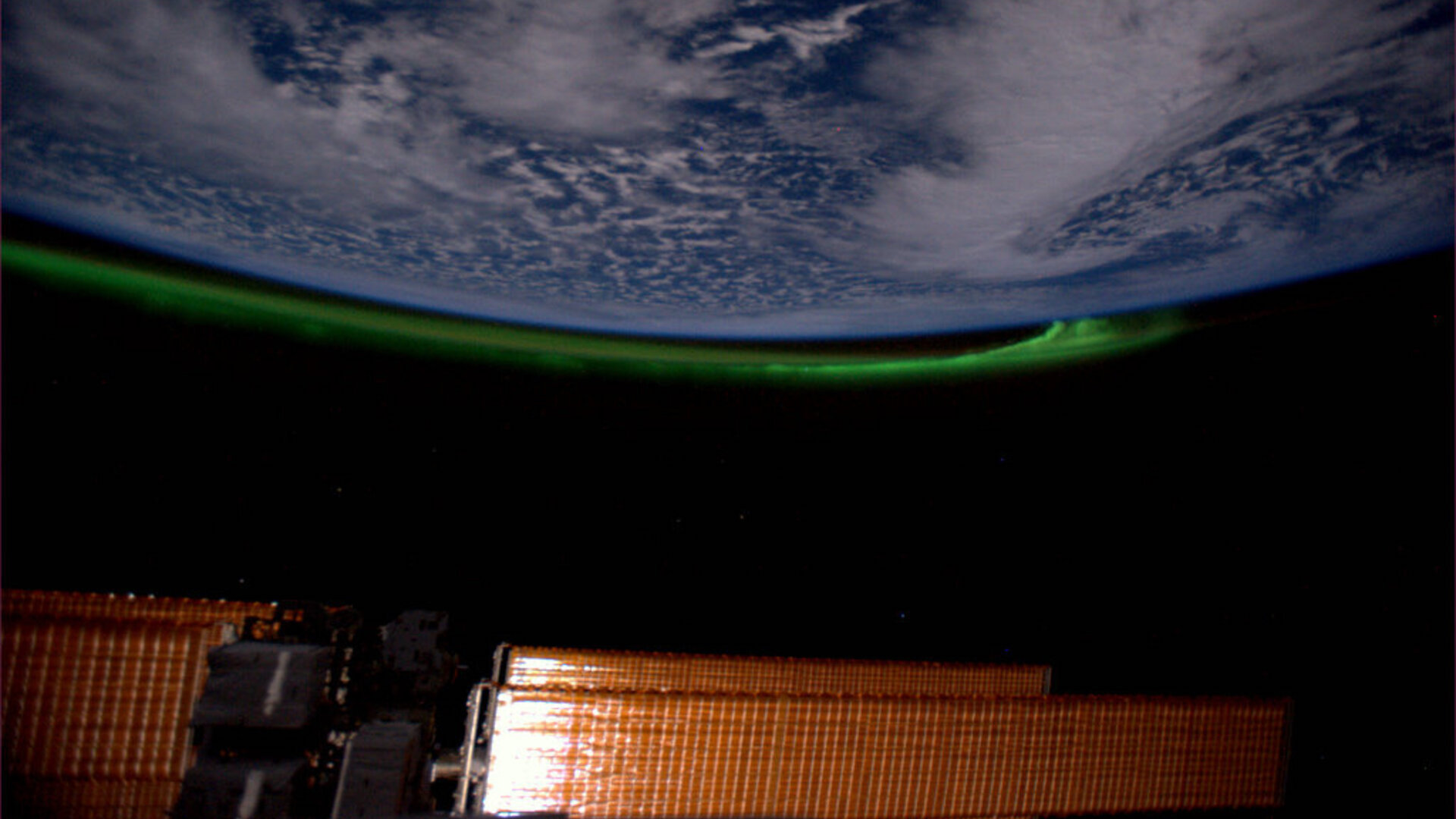
The green hand of the aurora borealis reaches over Earth in this surreal, upside-down photo taken from the ISS. Astronaut André Kuipers took this photo during his mission in 2012.
32. Aurora and crater
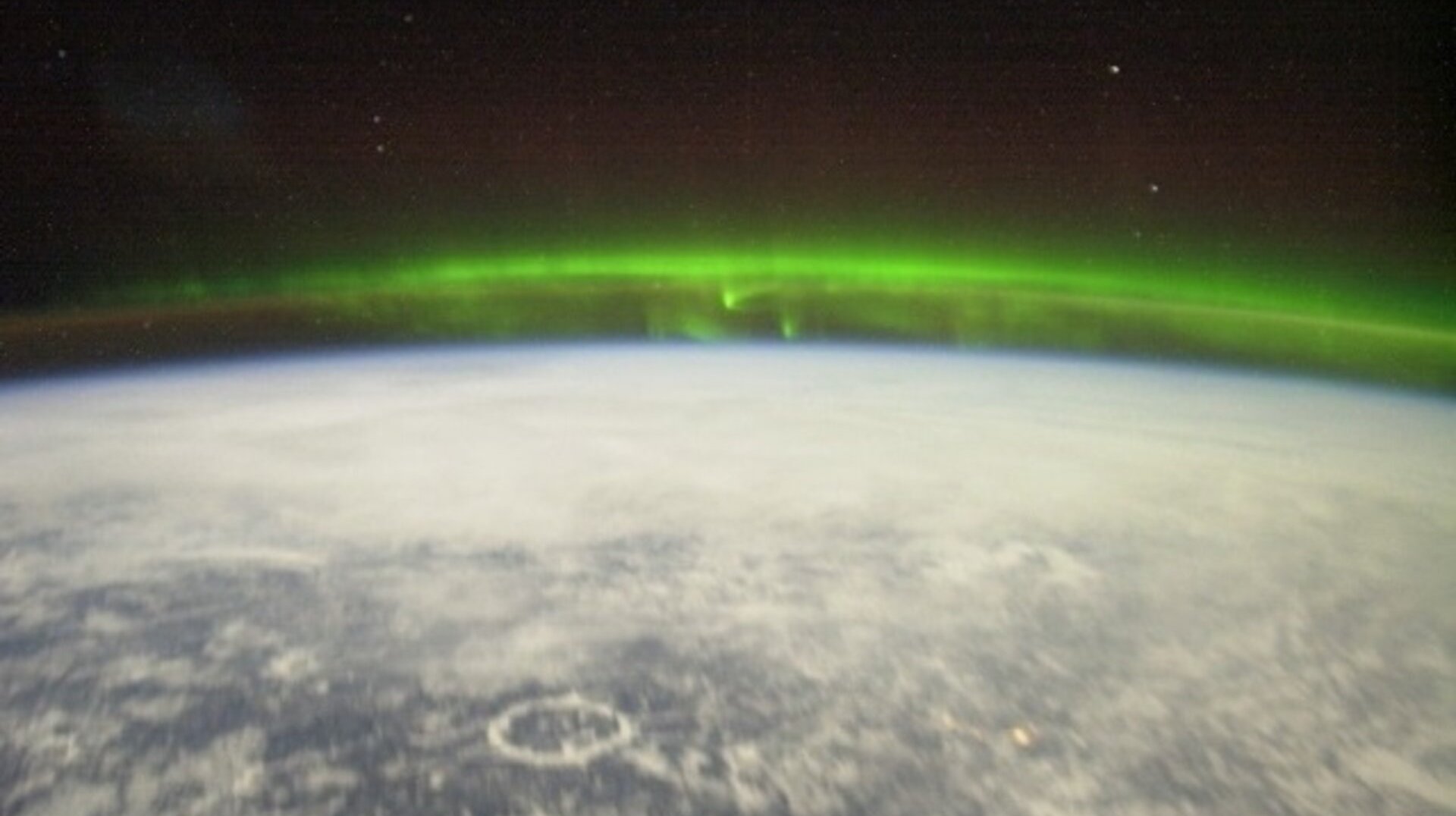
Green auroras snake over northern Canada in this epic 2006 photo taken from the ISS. In the foreground, the Manicouagan impact crater stands as a testament to Earth's ancient relationship with space.
Sign up for the Live Science daily newsletter now
Get the world’s most fascinating discoveries delivered straight to your inbox.

Brandon is the space/physics editor at Live Science. His writing has appeared in The Washington Post, Reader's Digest, CBS.com, the Richard Dawkins Foundation website and other outlets. He holds a bachelor's degree in creative writing from the University of Arizona, with minors in journalism and media arts. He enjoys writing most about space, geoscience and the mysteries of the universe.






